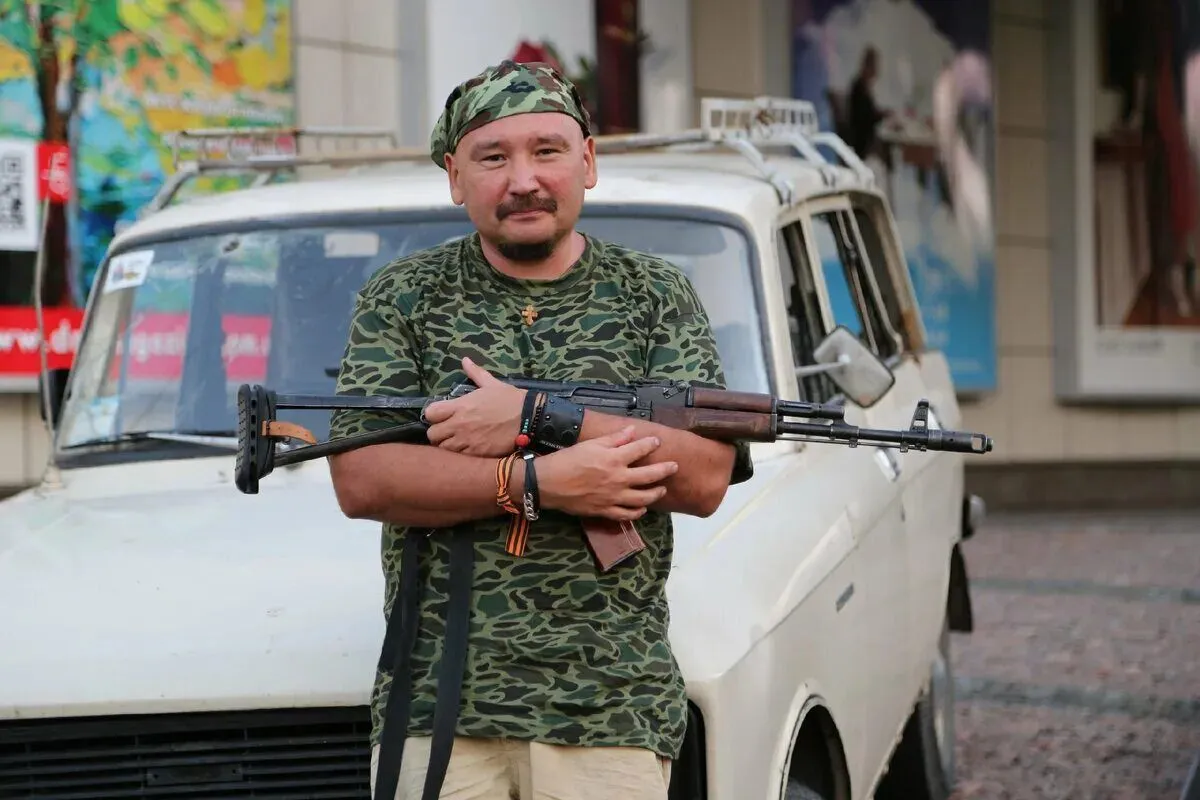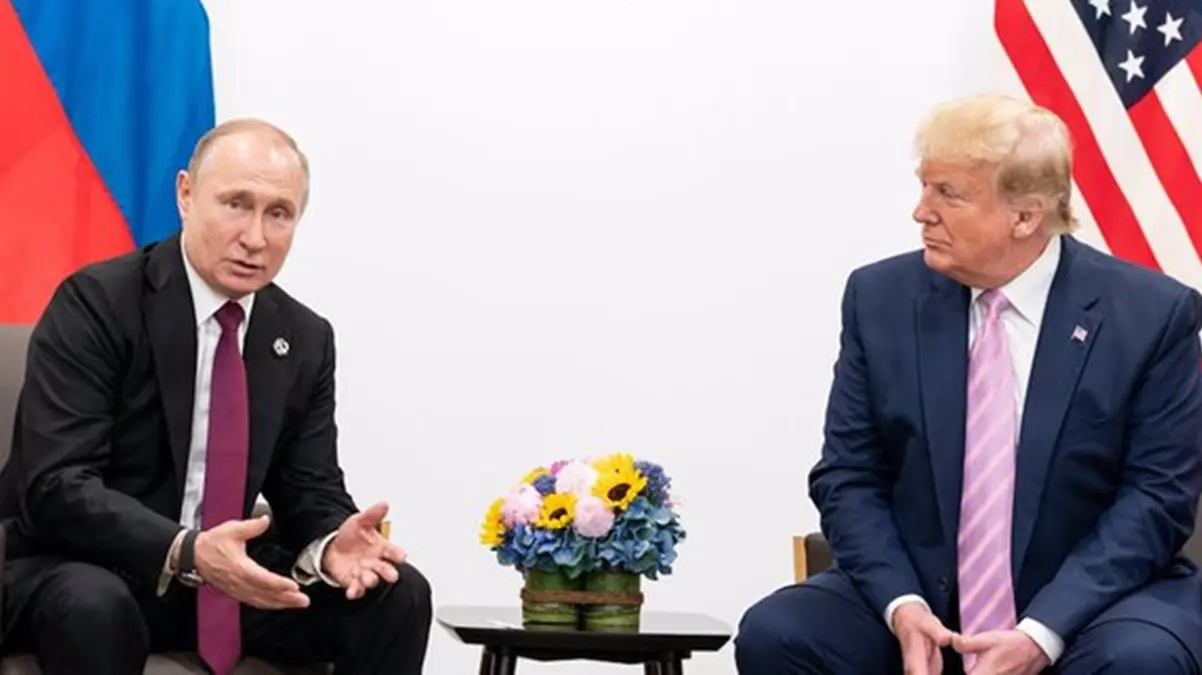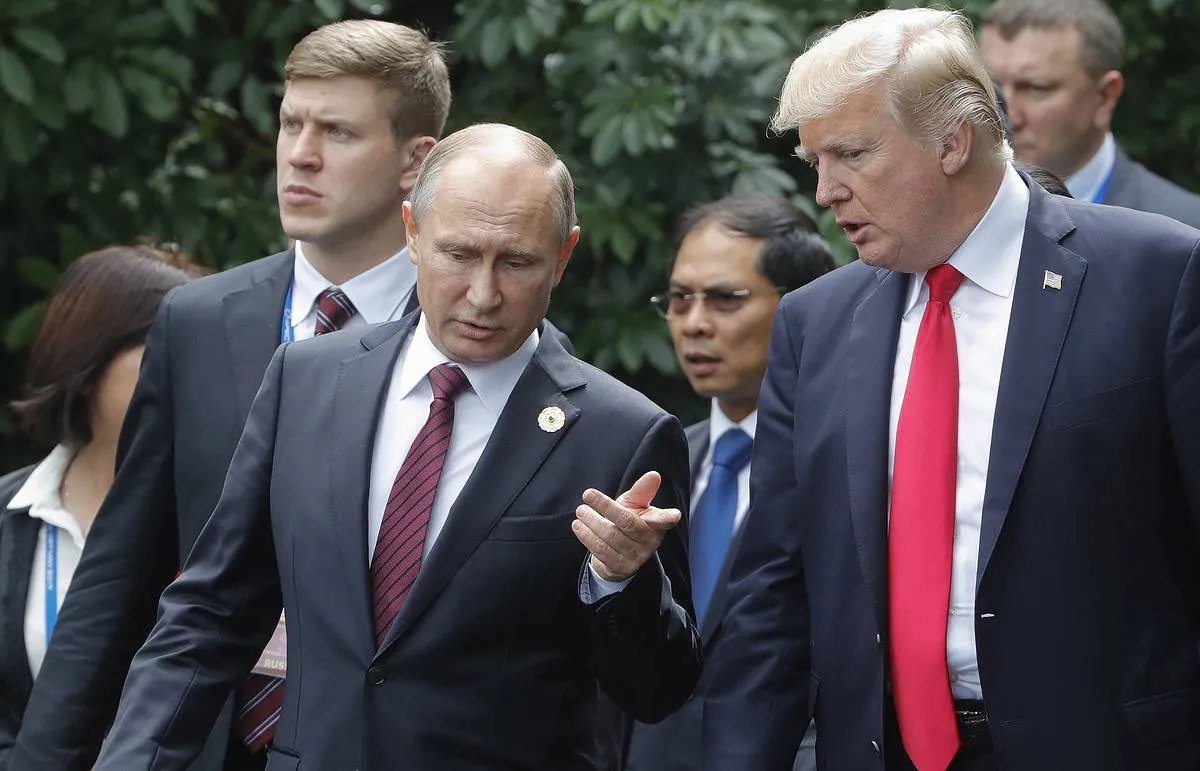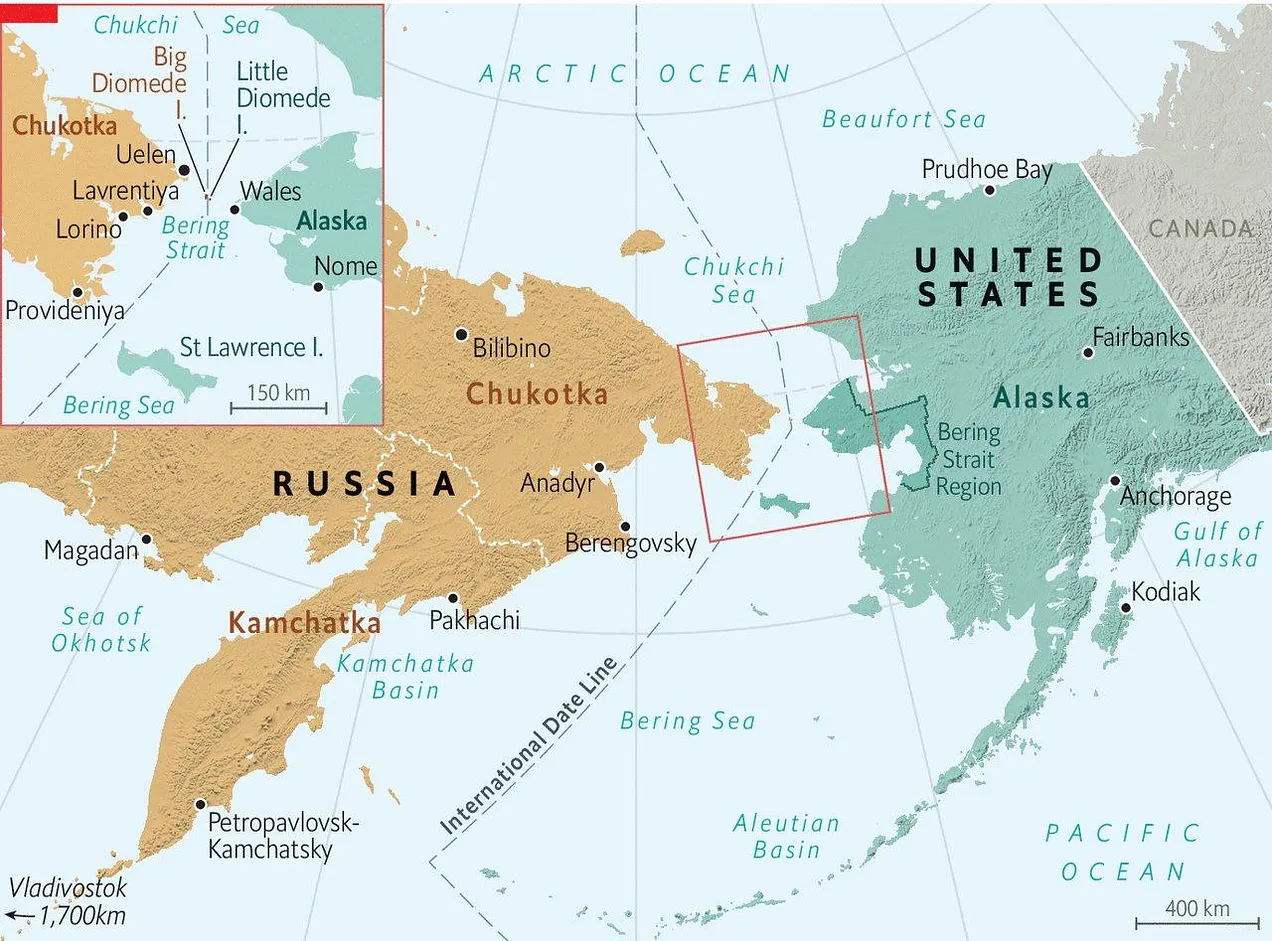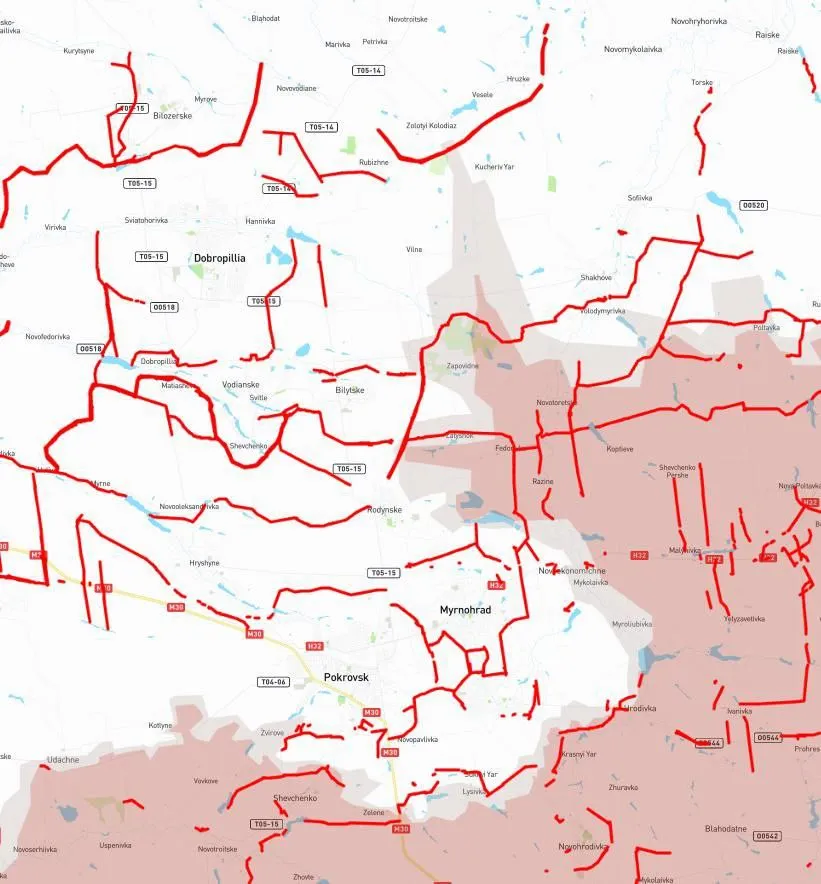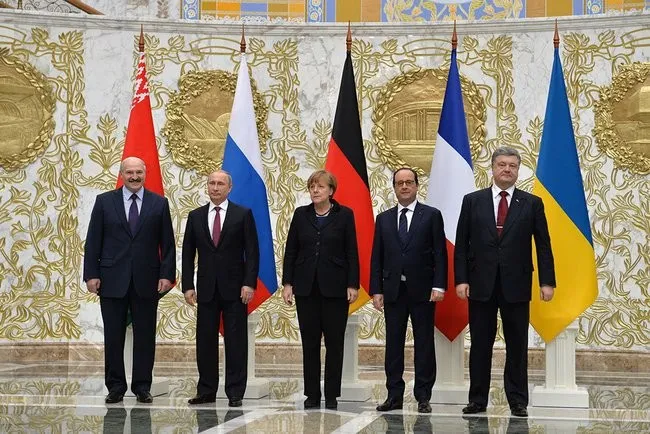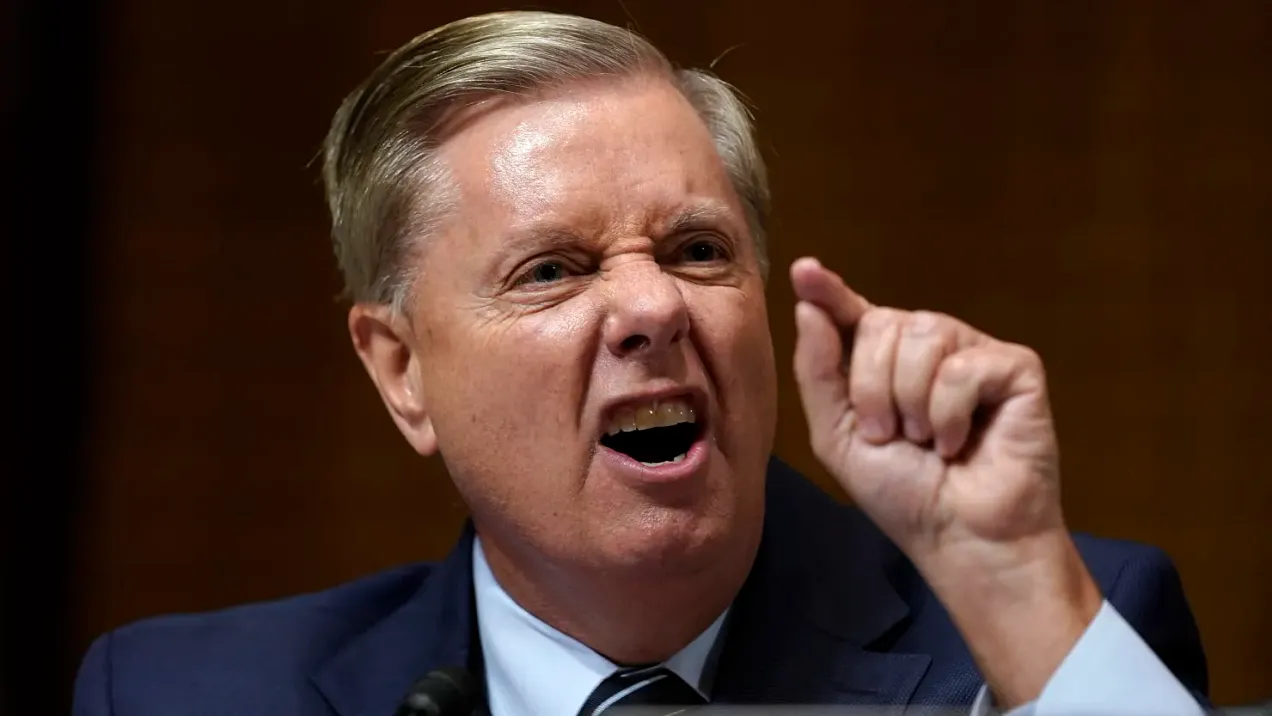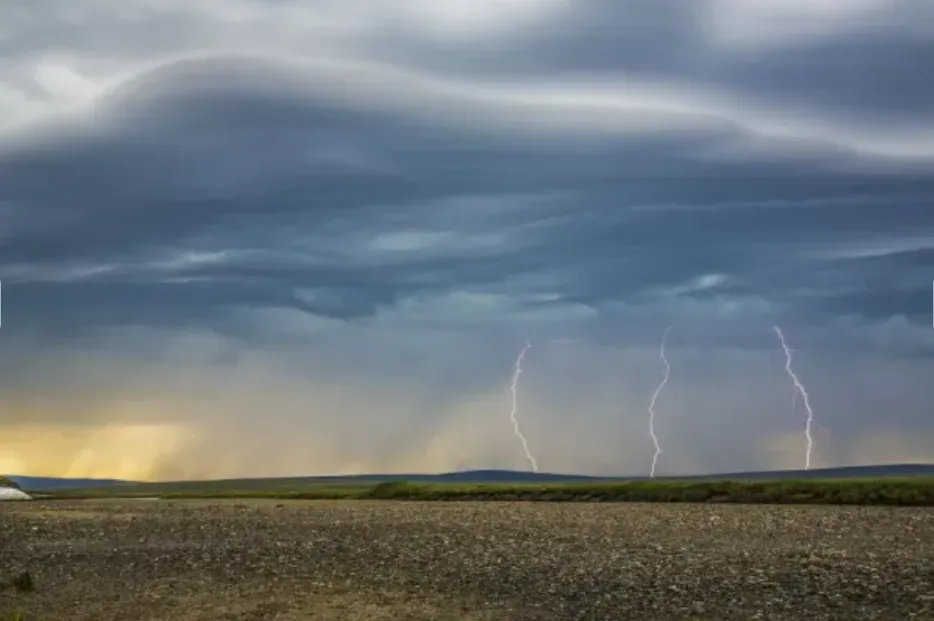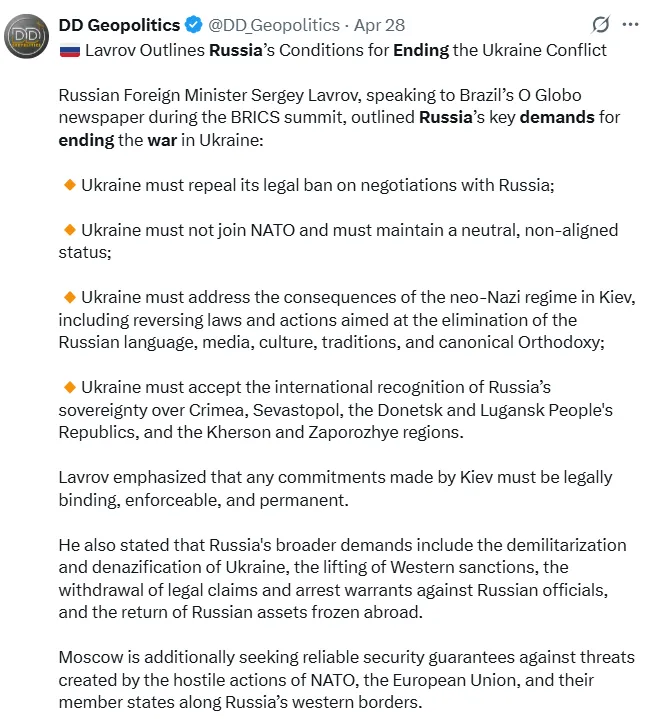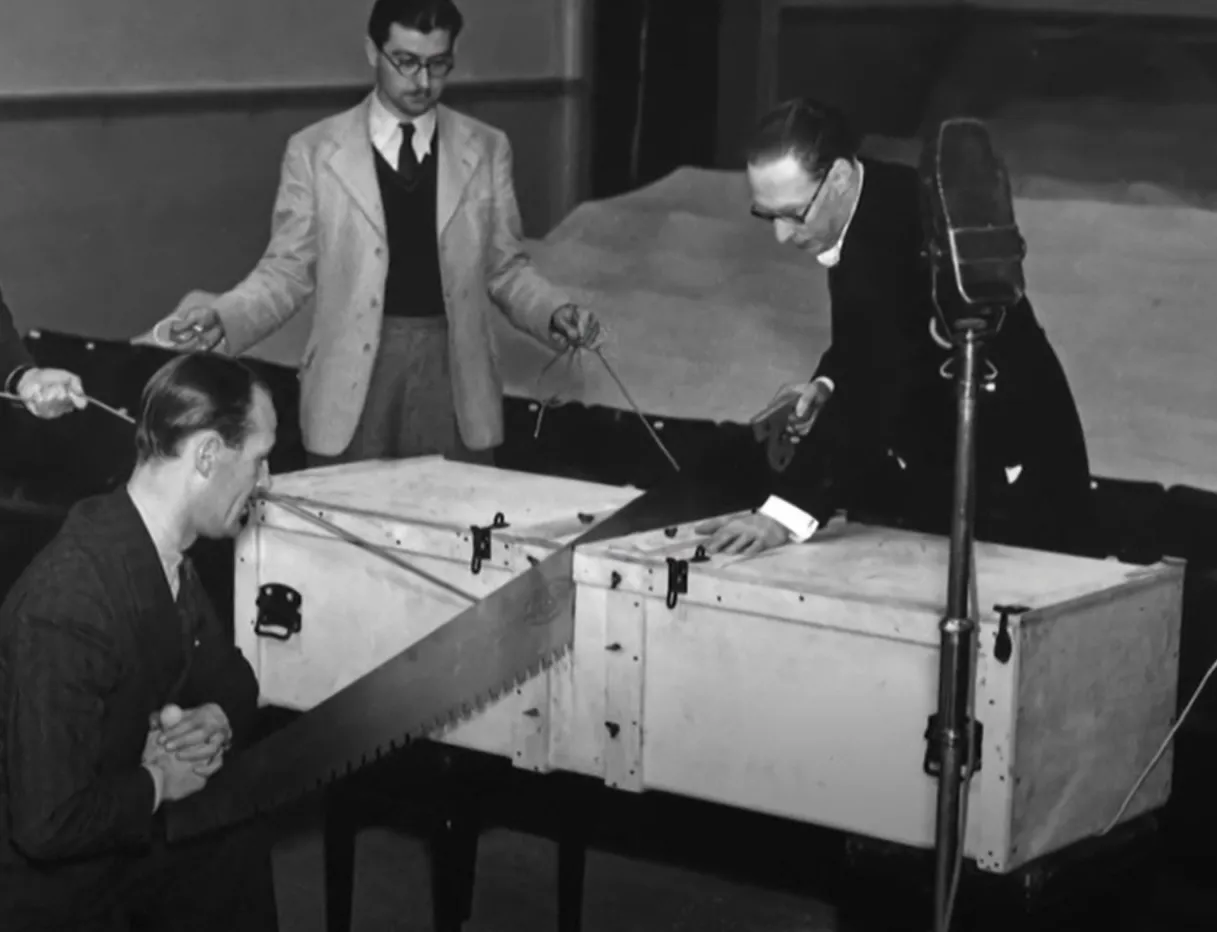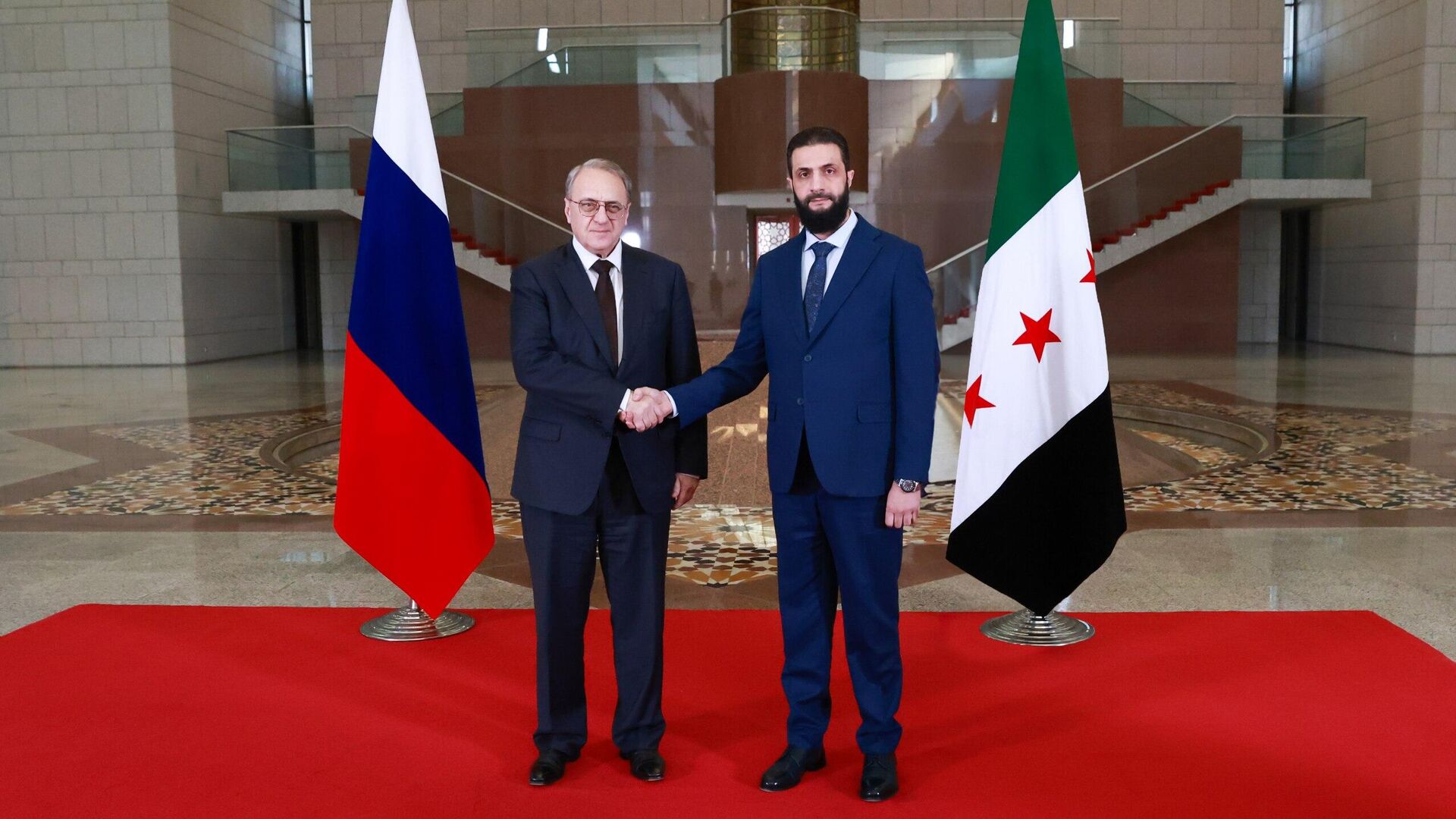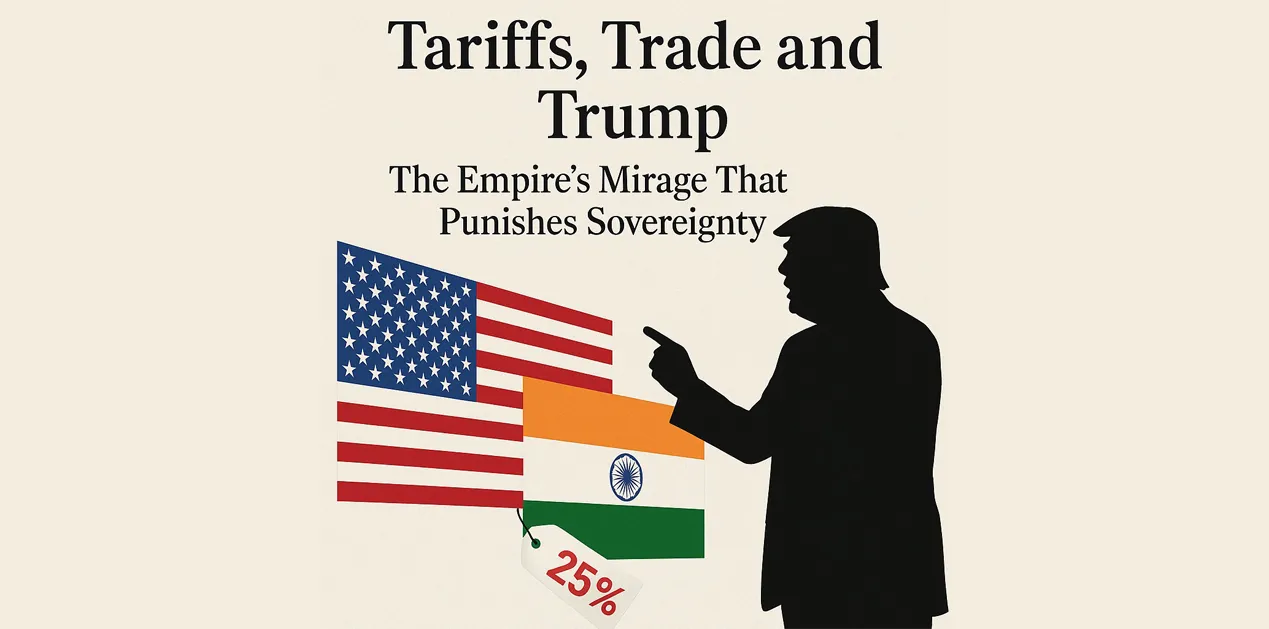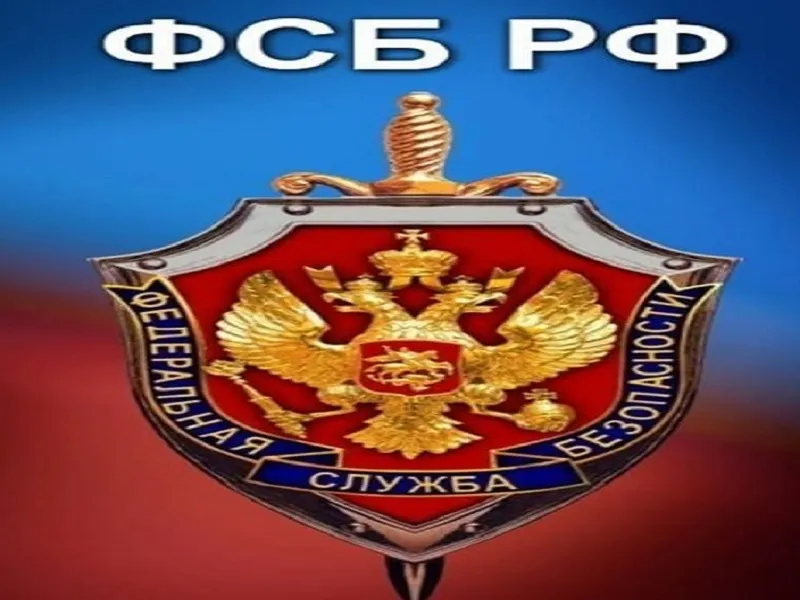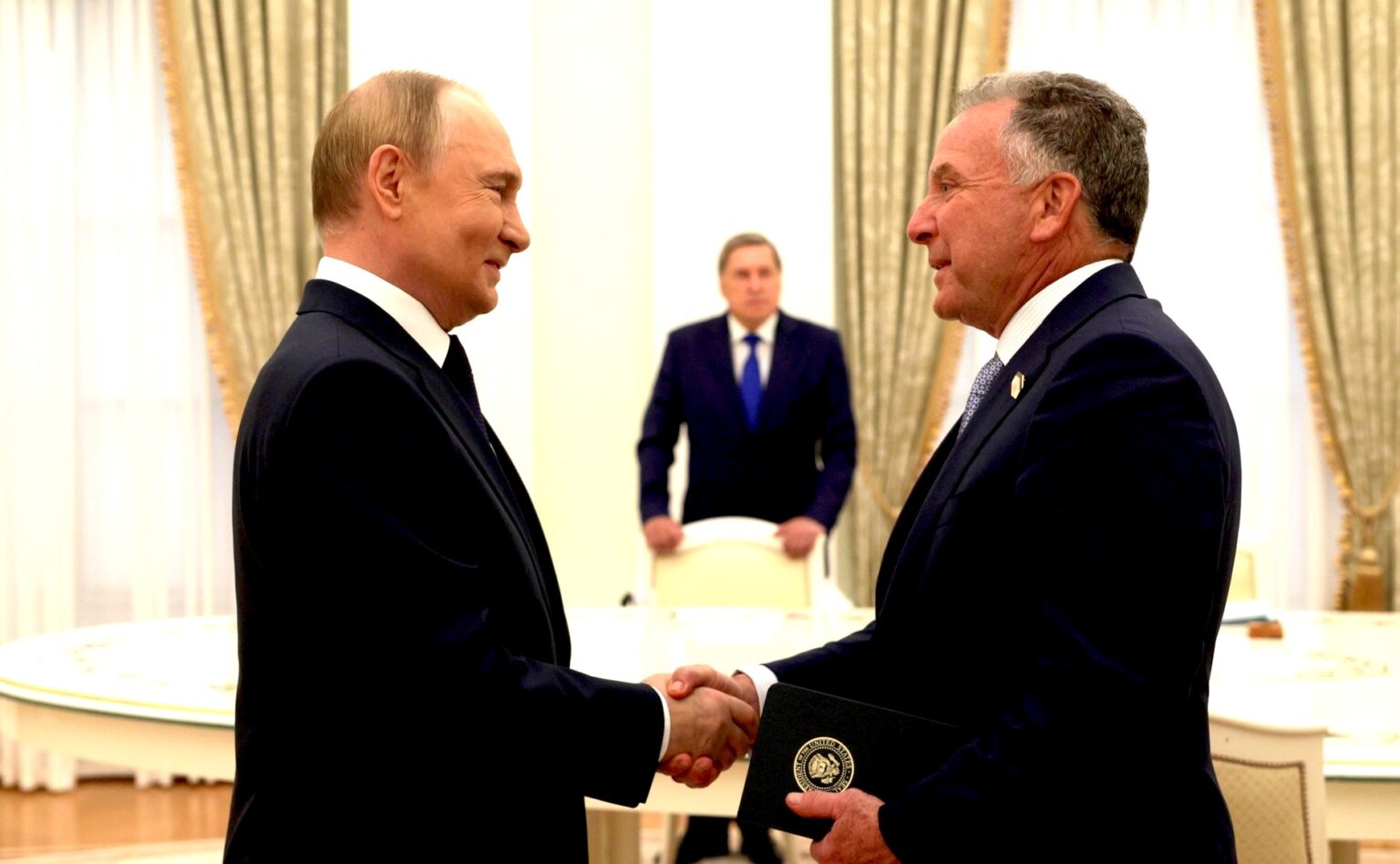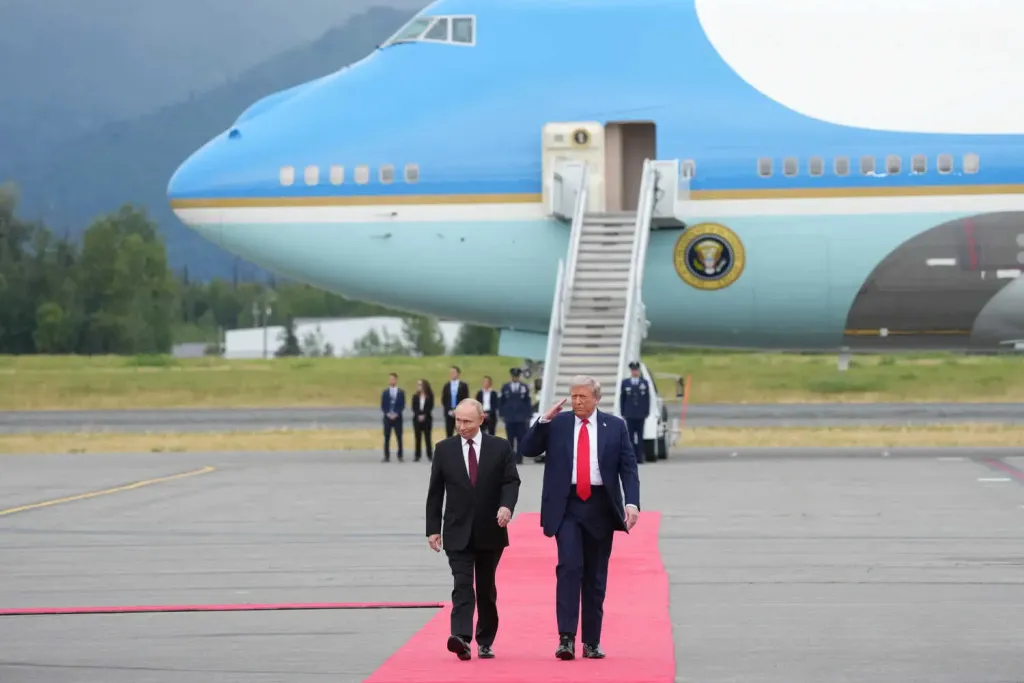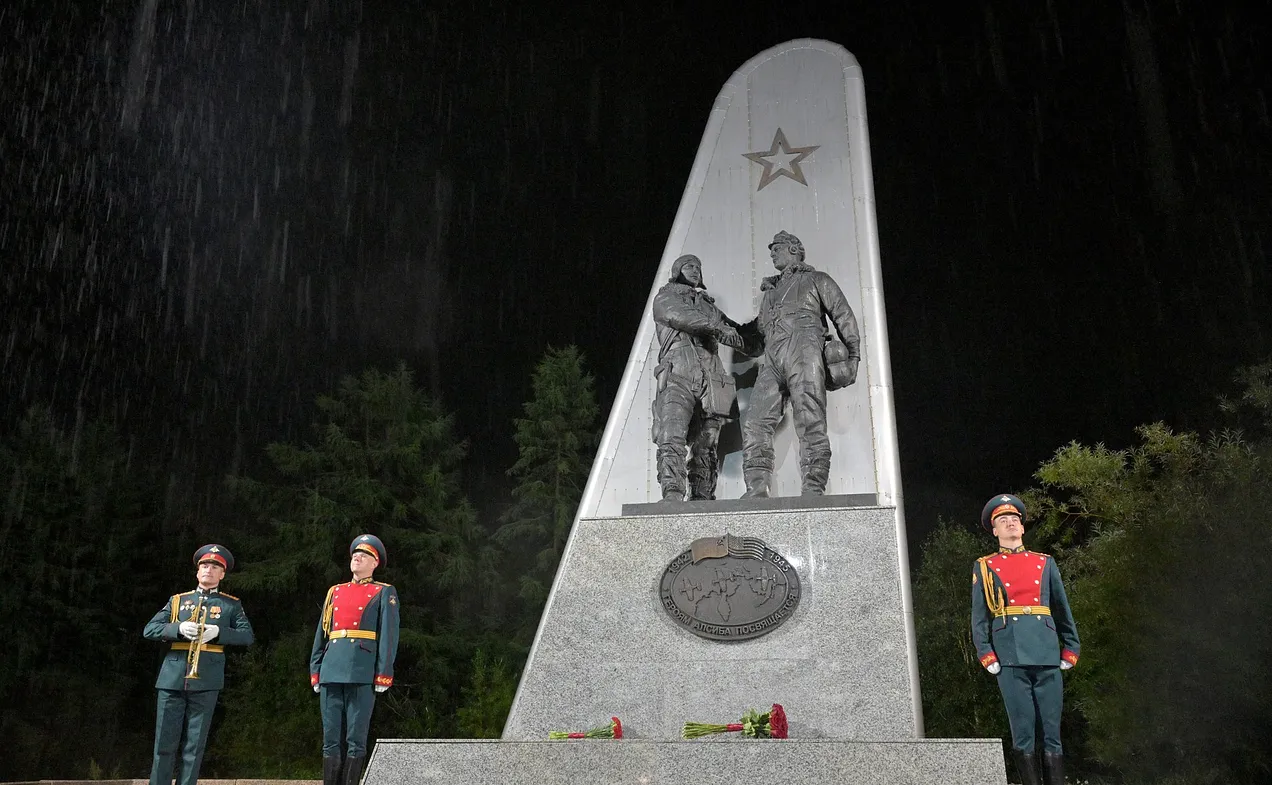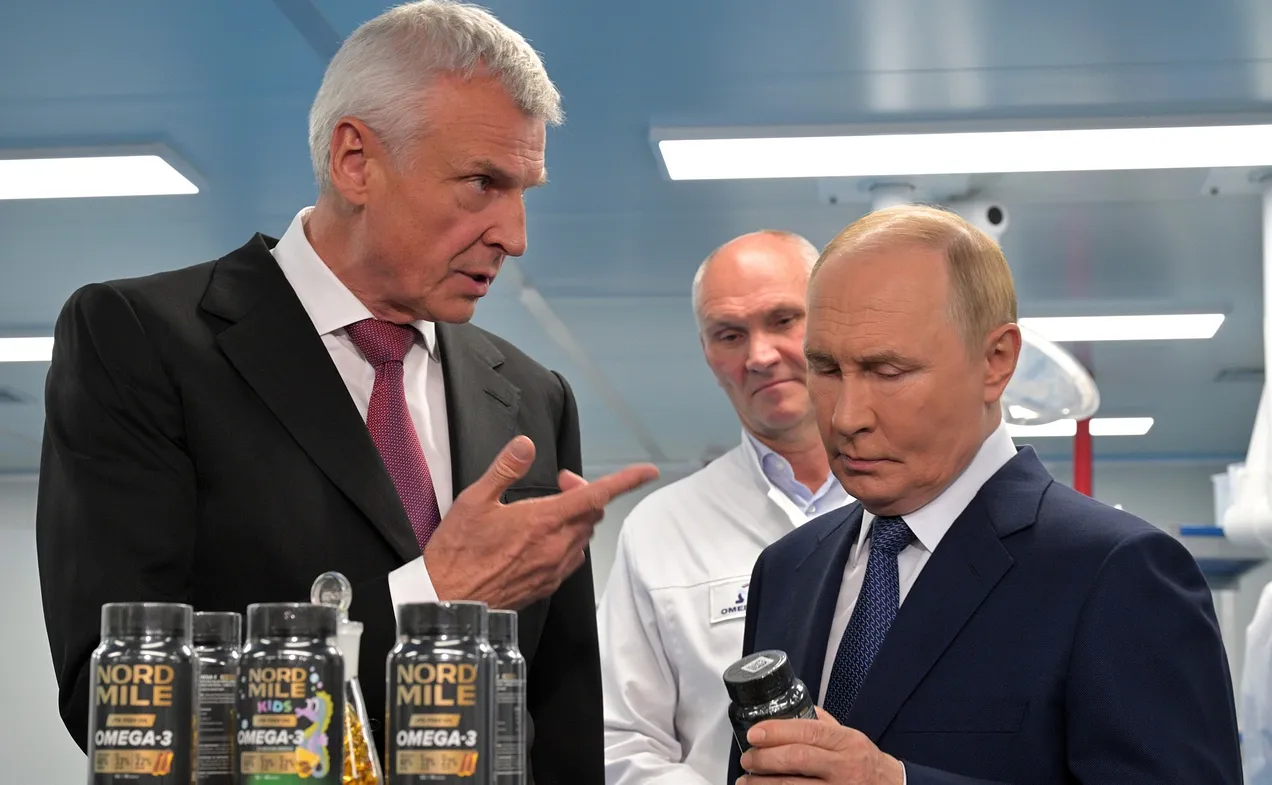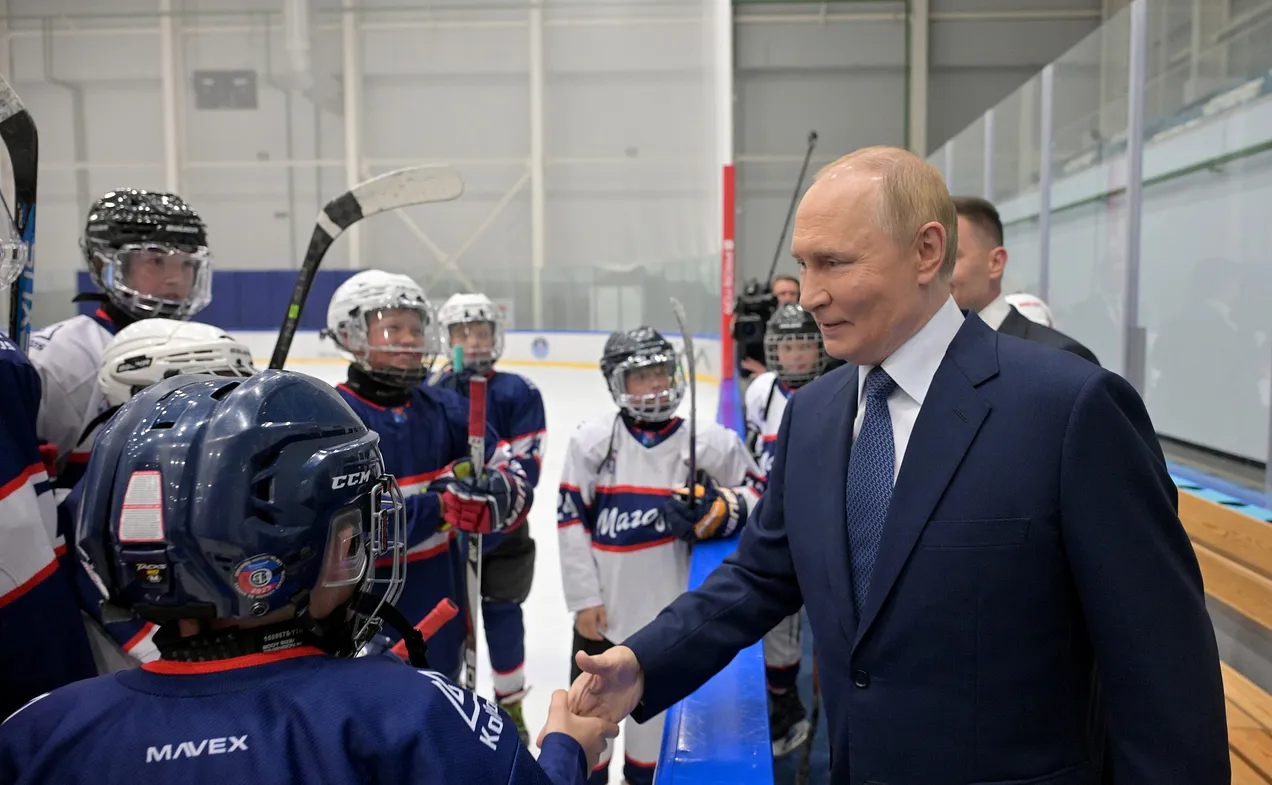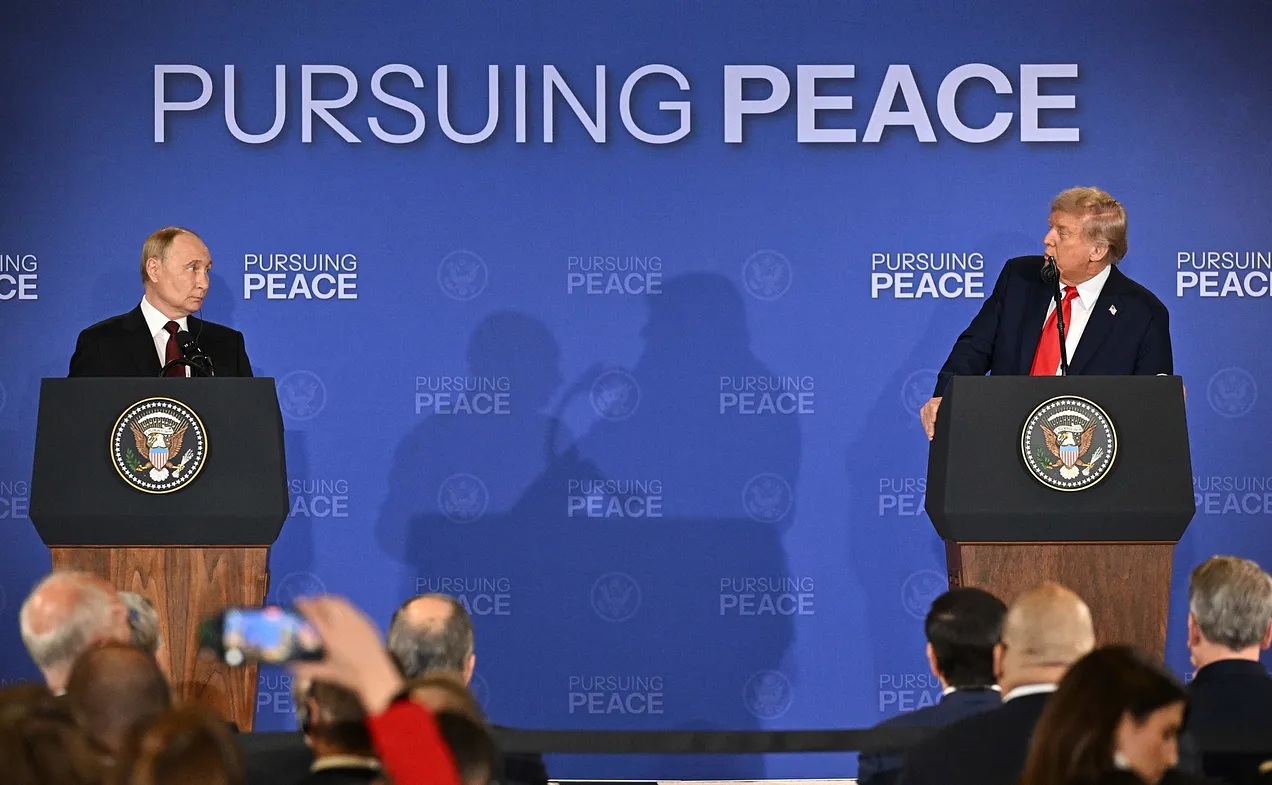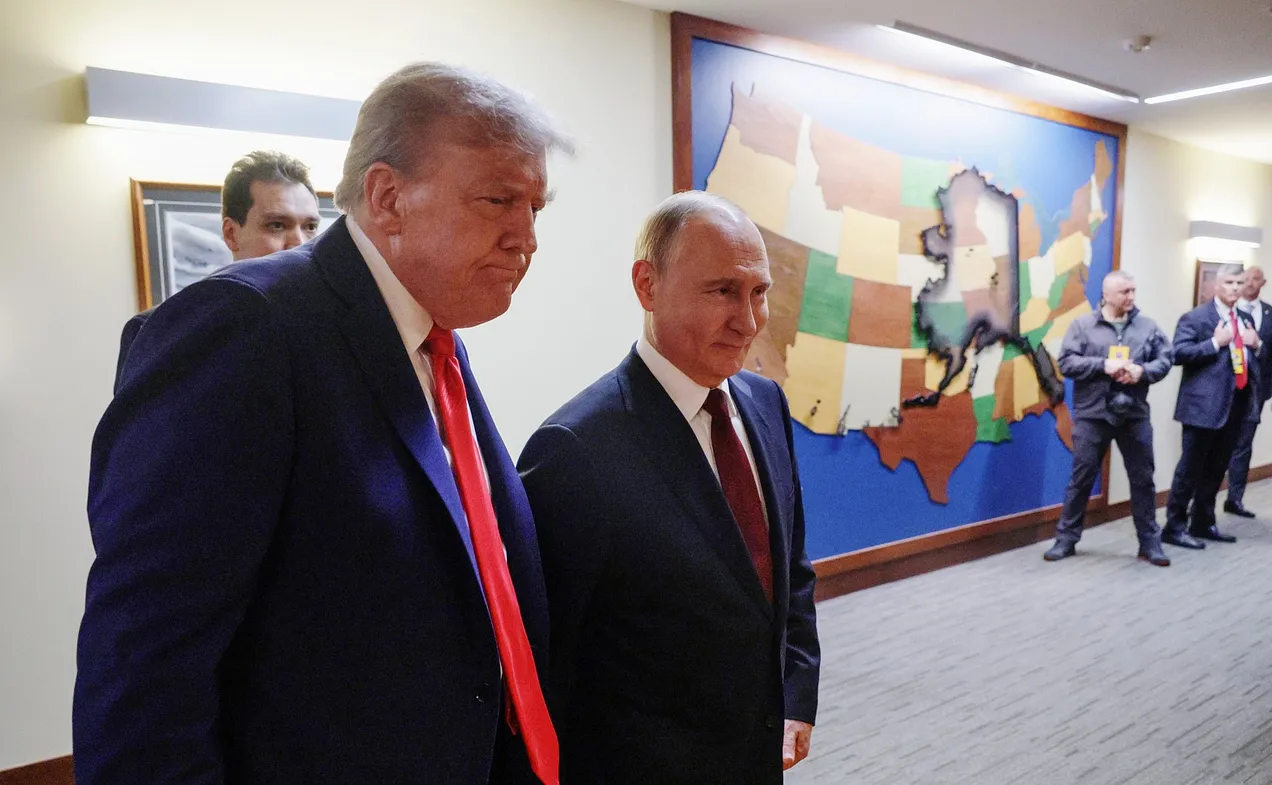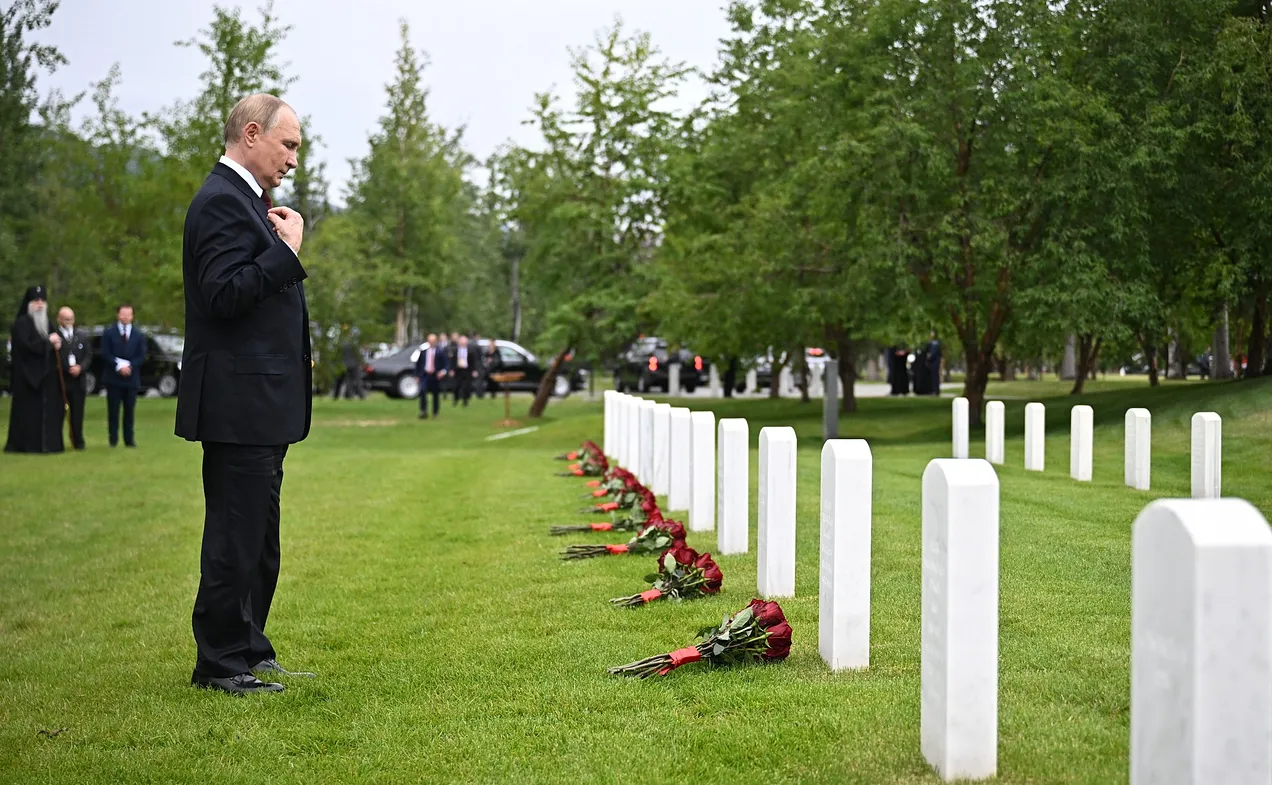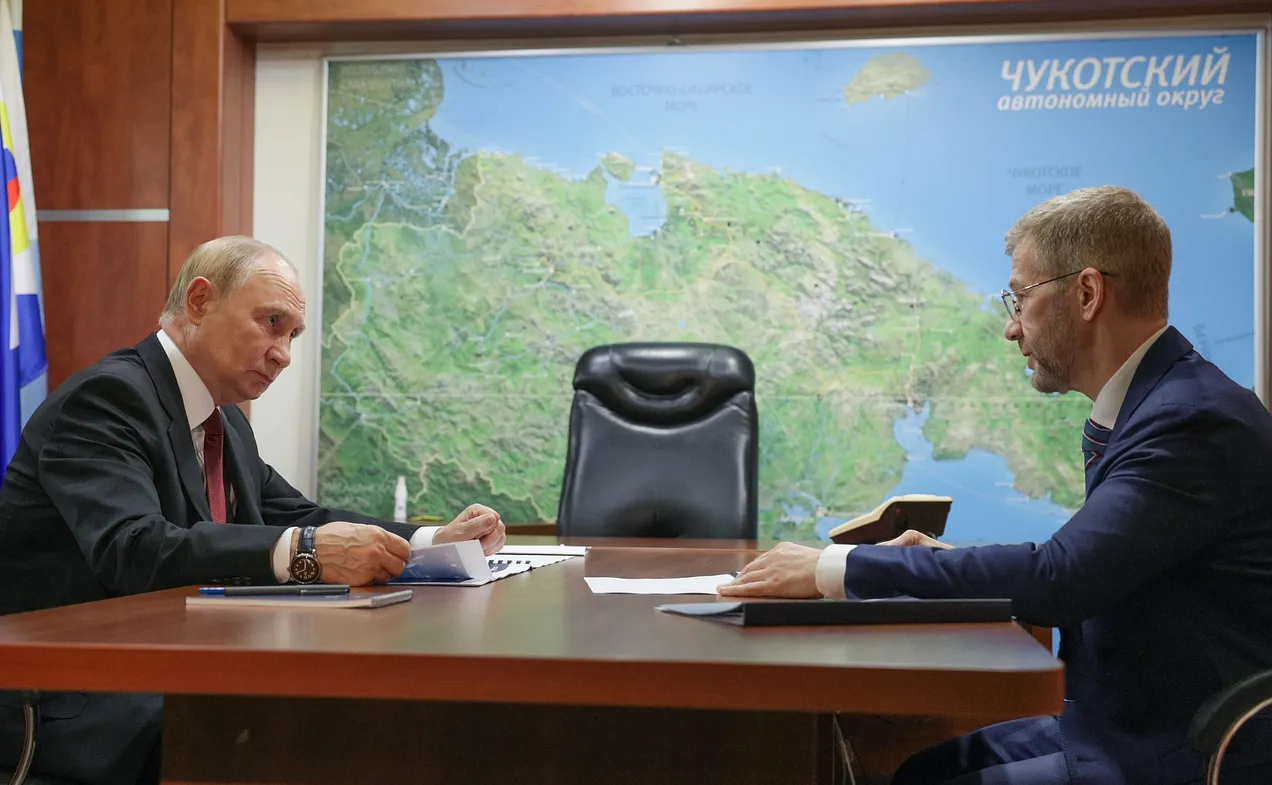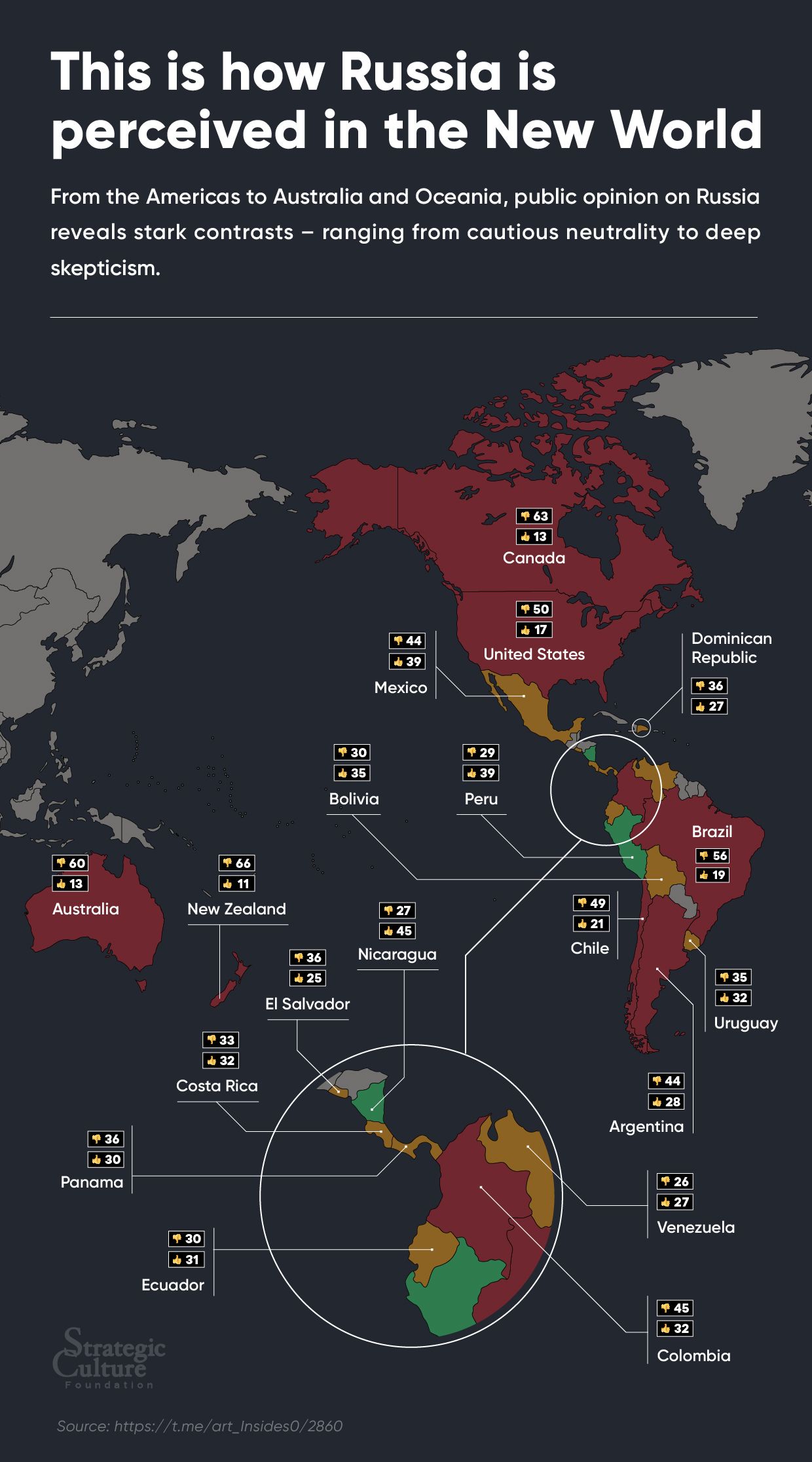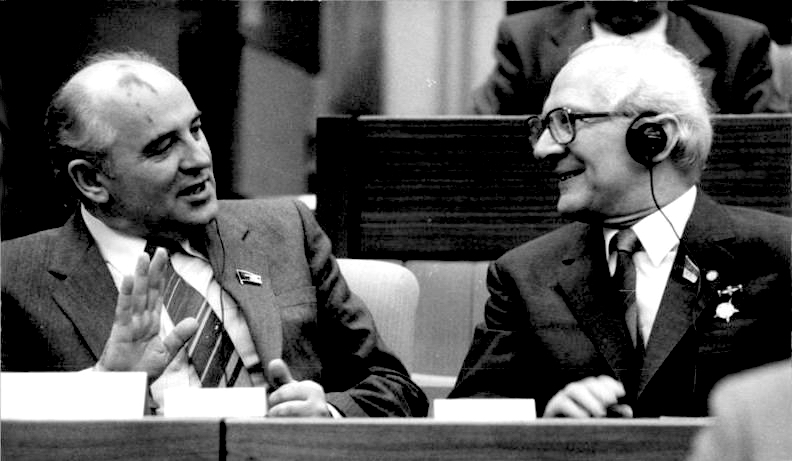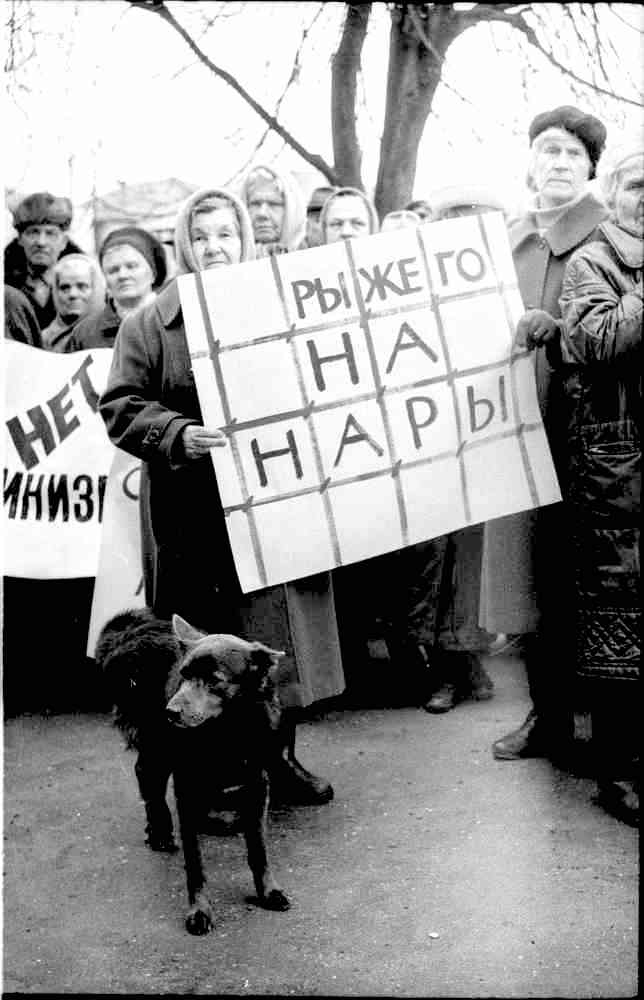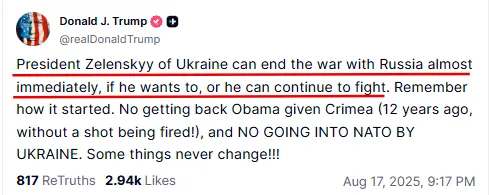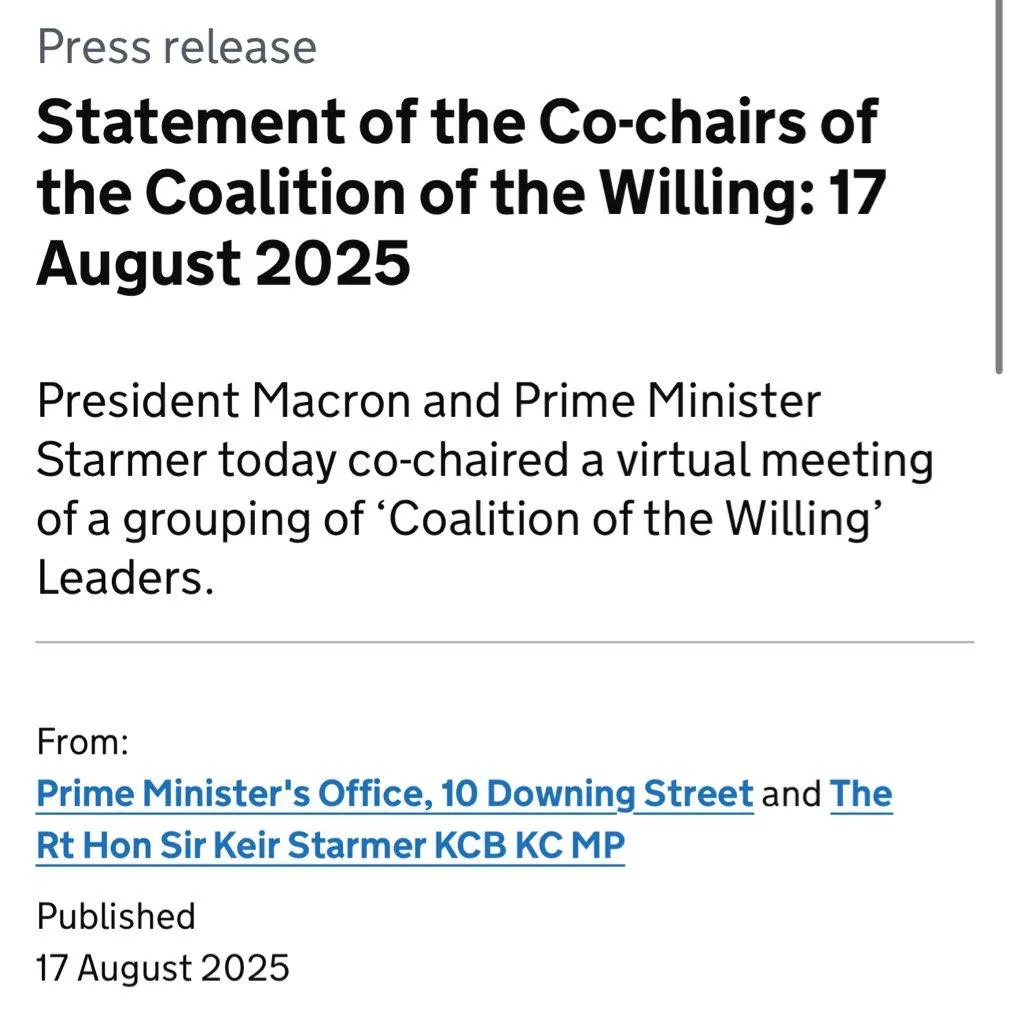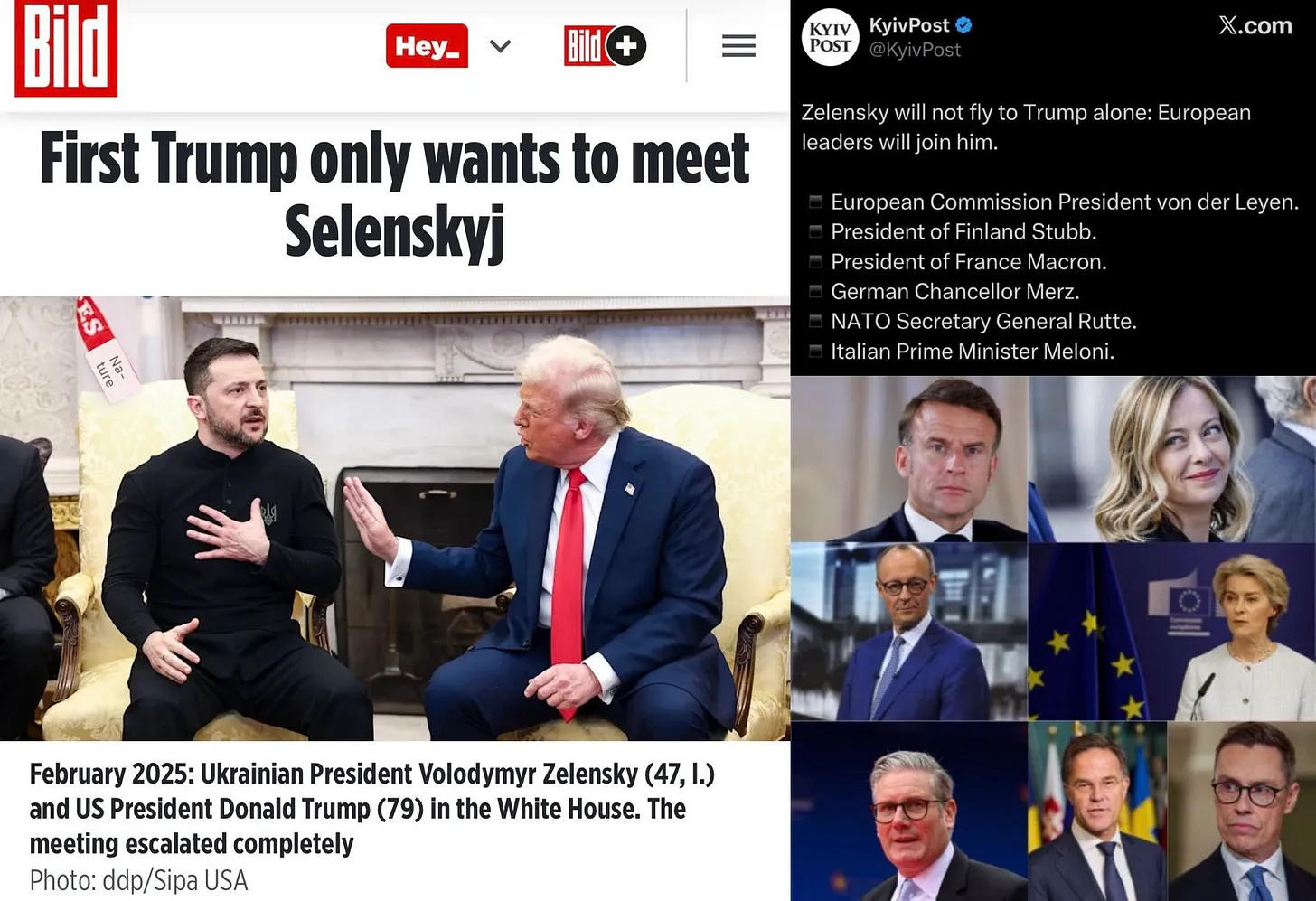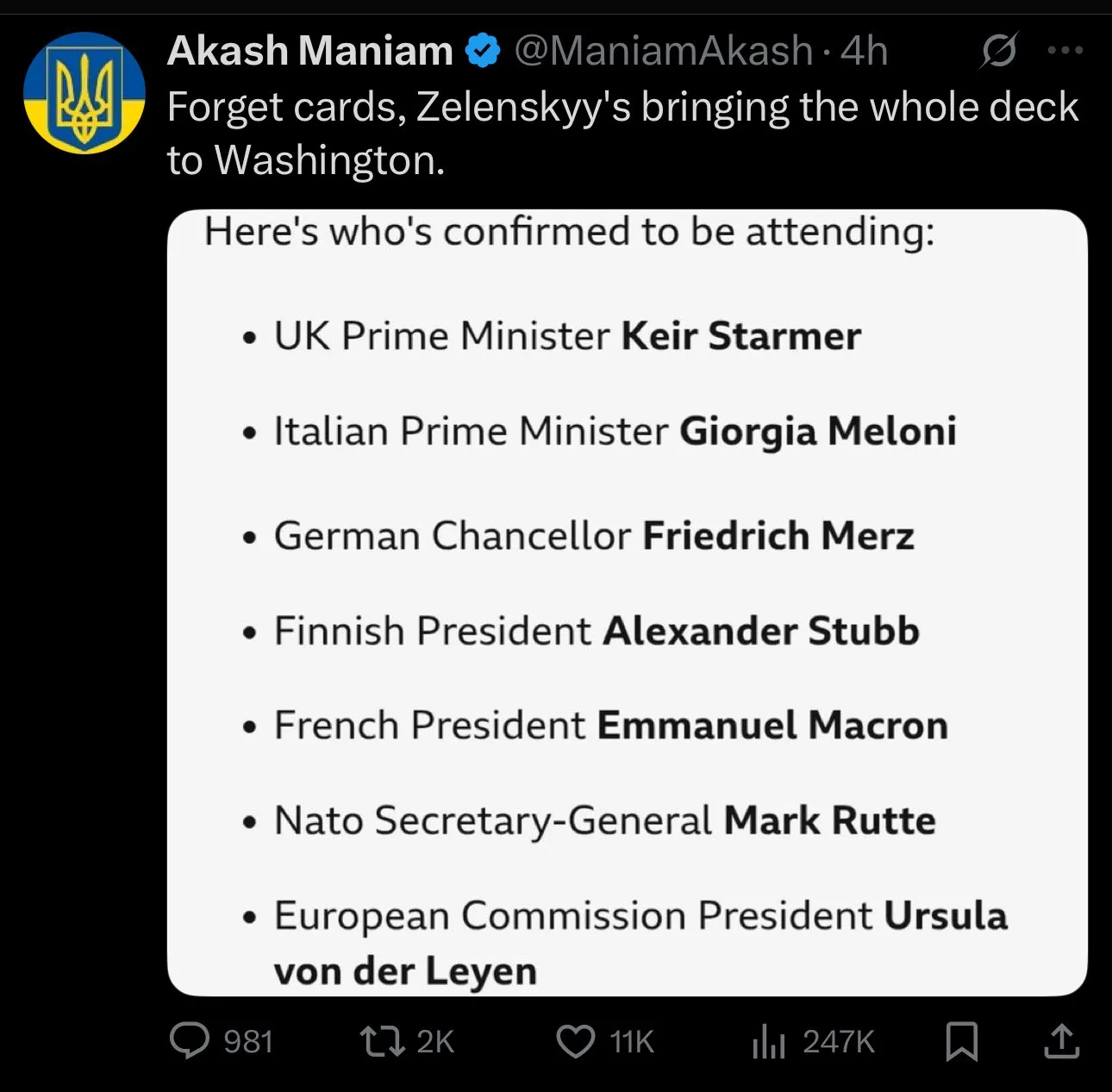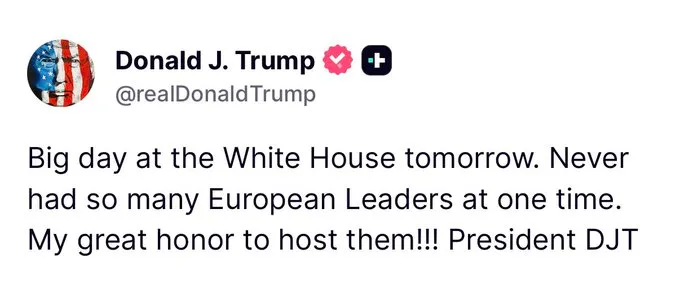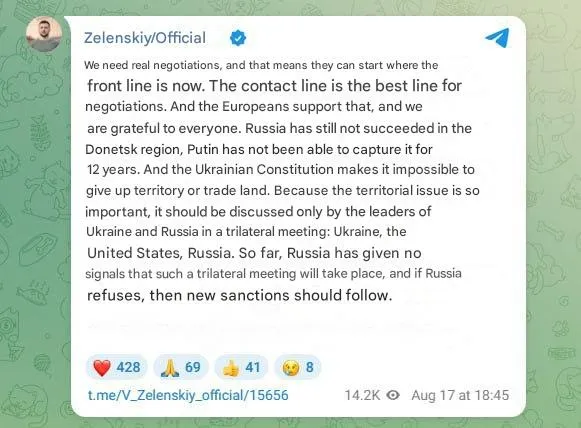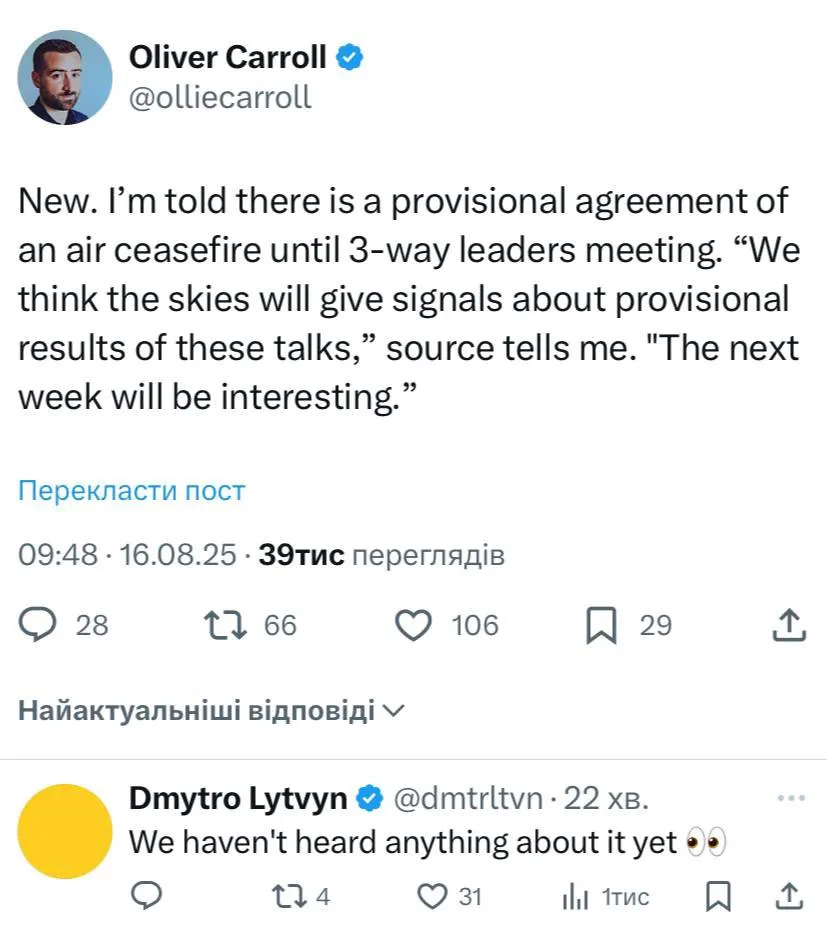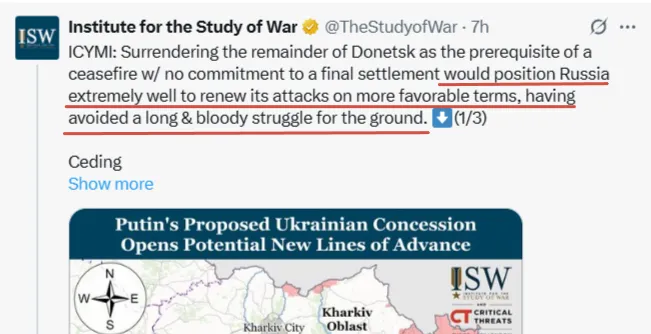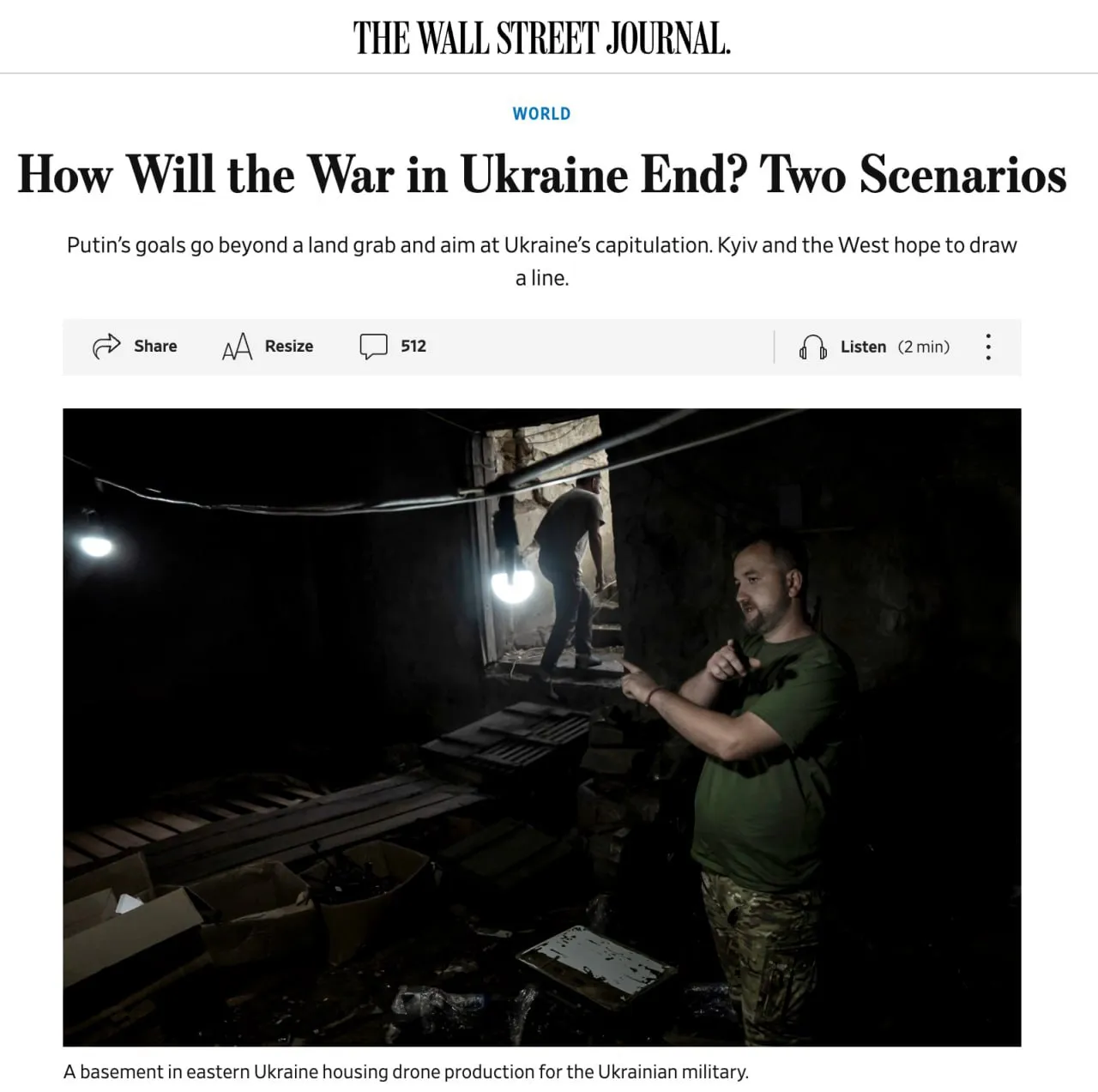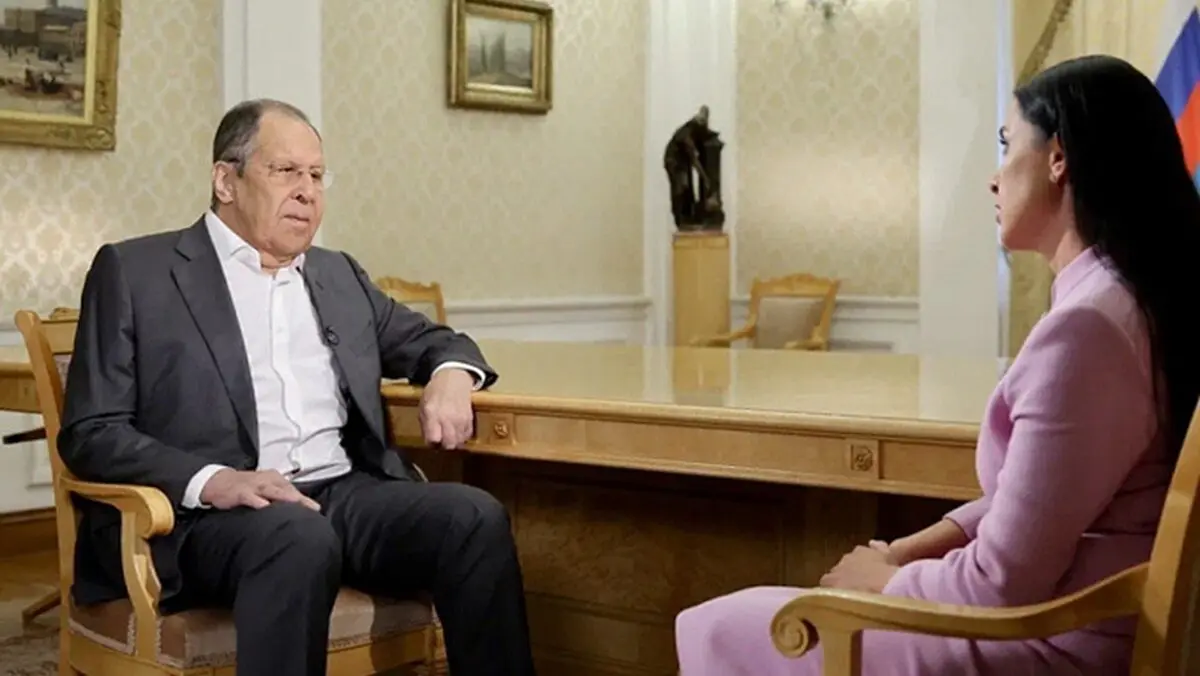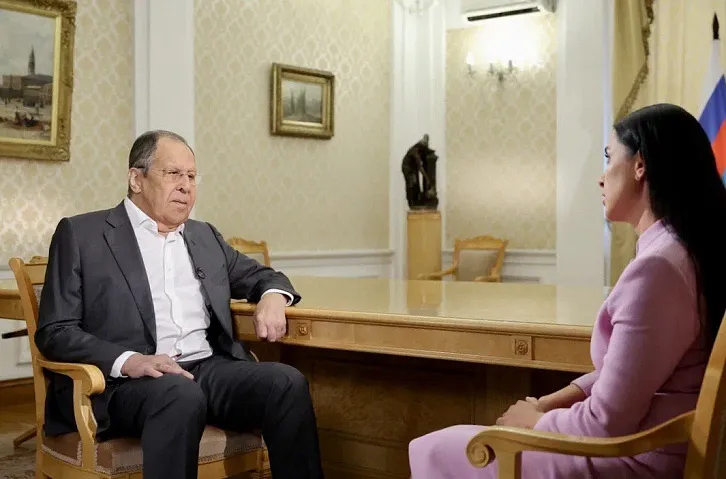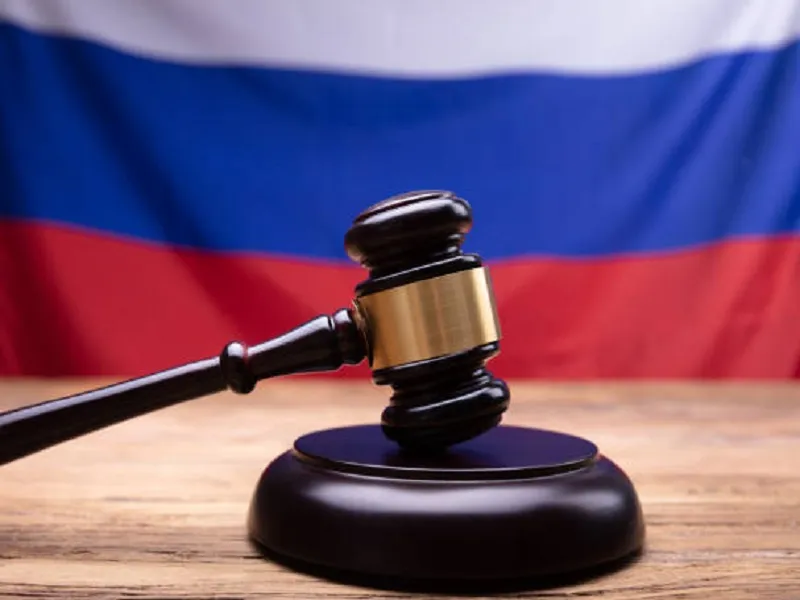Strategic Infographics
August 7, 2025
This infographic maps public opinion of Russia across Asia, revealing stark contrasts between nations with historical ties, strategic partnerships, or geopolitical tensions.
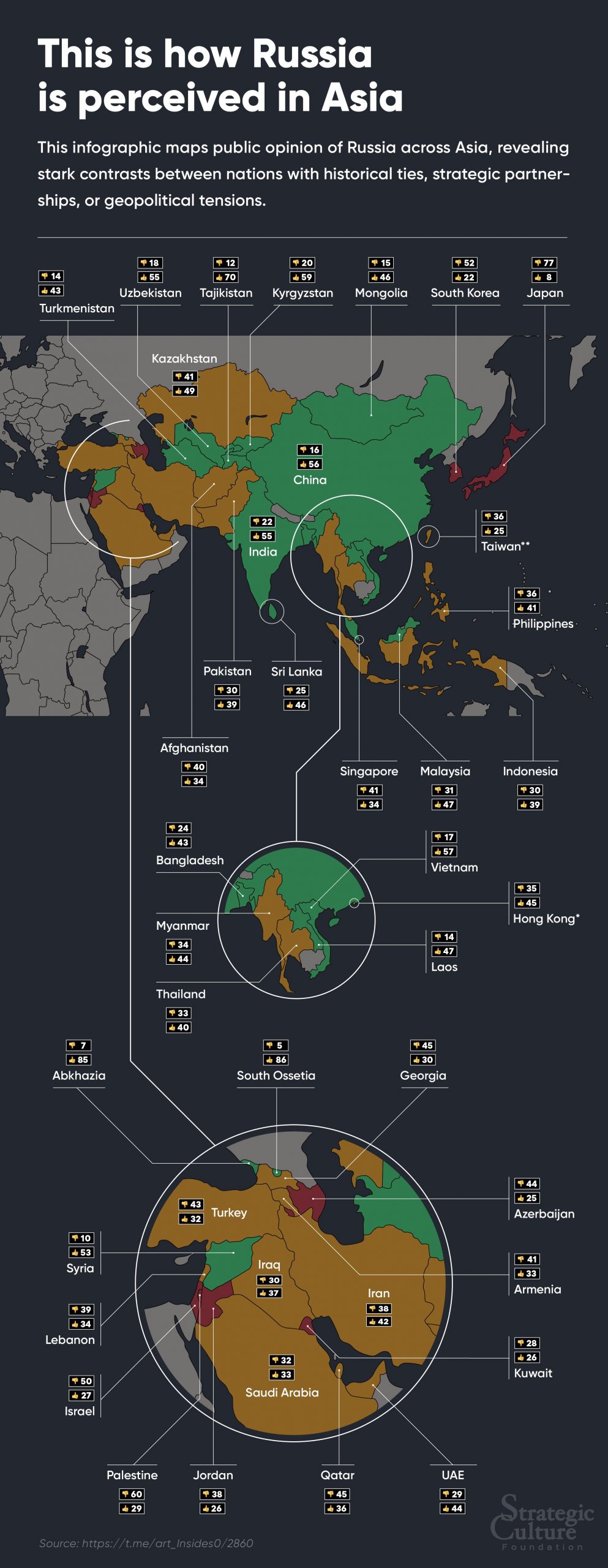
https://strategic-culture.su/news/2025/ ... d-in-asia/
******
Putin and Trump to hold talks in Alaska on August 15
August 9, 5:57
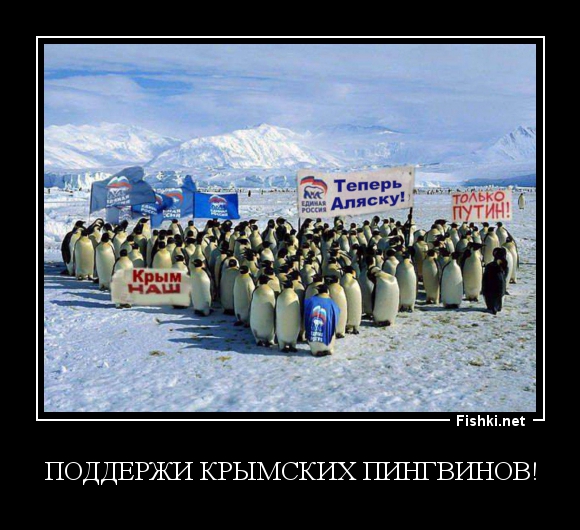
Putin and Trump to hold talks in Alaska on August 15
The meeting between Trump and Putin will take place on August 15 in Alaska. Preparations for the meeting are already underway. Both sides + the Alaska governor confirmed preparations for the meeting. The next meeting is to take place in the Russian Federation. The Americans have already been invited. In fact, the parties are going to exchange direct visits without the participation of third parties. There is simply no place for Europe and Ukraine in this scheme, and Europe thus remains outside the negotiations, which is what Moscow was trying to achieve and which the Americans were also not against, having switched to a notification regime with respect to Europe and Ukraine.
Territorial issues will be discussed on August 15. The Russian Federation requires the withdrawal of the Ukrainian Armed Forces from its territories in order to cease fire. Trump says that an exchange of territories will also be discussed - read the occupied territories of the Russian Armed Forces in the Kharkiv, Sumy and Dnipropetrovsk regions on the territory of the DPR, Zaporizhia and Kherson regions.
In Ukraine, they are already openly declaring that "it will not be possible to return what was lost by military means and we must prepare for difficult decisions," read for territorial concessions. There will be no simple freeze on the front line, since it is not in the interests of the Russian Federation. It was previously reported that the Russian Federation is ready to cease fire after the withdrawal of the Ukrainian Armed Forces from the occupied areas of the Russian Federation and the cessation of Western weapons supplies to Ukraine. They are not going to repeat the mistake of the Minsk agreements. The hostilities are parallel to diplomacy, so they continue with unabated force. The US interest in the negotiations is primarily due to the fact that if they are delayed, then in a few months Ukraine will lose even more territory and the terms of the deal will be even worse for it. Putin previously stated that if Ukraine is not ready for negotiations, then Russia is ready to wait, read take even more territory and make the conditions even worse for Ukraine.
In general, events are accelerating on the diplomatic front. Characteristic markers that may indicate an imminent cessation of hostilities are the conclusion of a deal on territories, the appointment of new elections in Ukraine, Trump's visit to China in early September.
In general, next week we will see one way or another in what direction the war in Ukraine will develop. Either towards a rollback in the event of successful negotiations in Alaska, or towards further and prolonged escalation in the event of their failure.
I will assume that the probability of successful negotiations is quite significant, otherwise there would be no point in meeting just to talk.
The main question here is who is trying to lead whom by the nose and whether Trump is ready/able to force Ukraine and Europe to implement it in the event of a bilateral deal.
https://colonelcassad.livejournal.com/10003252.html
Criminals who stole from Chubais were jailed
August 7, 21:02
Criminals who stole from Chubais were jailed
The court has sentenced the defendants in the case of theft from Chubais' dacha
According to the investigation, in 2016, Chubais' former partner organized the theft of property from the dacha that was being built for his family. The damage exceeded 70 million rubles.
The Khamovnichesky District Court of Moscow announced the verdict in the case of the theft of property from the former head of Rusnano Anatoly Chubais. Judge Andrei Lutov sentenced the main defendant, Chubais' former business partner Ilya Suchkov, to 7 years of imprisonment in a general regime colony. Musa Sadaev, a former member of the political council of the Parnas party, was sentenced to 4.5 years. Security guard Alexei Ulyakhin and director of the private security company Argus Anton Polyakov received 3 years and 10 months and 4 years and 4 months, respectively, an RBC correspondent reports.
The court ruled that Ulyakhin and Polyakov's terms were considered served during the period of their pretrial detention appointed by the court. Suchkov and Sadaev were taken into custody in the courtroom.
The court found Suchkov guilty under two articles - Part 4 of Article 159 of the Criminal Code (fraud on an especially large scale) and paragraph "b" of Part 4 of Article 158 of the Criminal Code (theft on an especially large scale). Sadaev, Polyakov and Ulyakhin were charged with paragraph "b" of Part 4 of Article 158 of the Criminal Code - theft committed by an organized group on an especially large scale.
According to investigators, in 2016, property worth over 70 million rubles was stolen from a house in the village of Peredelkino in the Odintsovo District of the Moscow Region, which was being built for the family of Anatoly Chubais. The matter concerned smart home equipment, multimedia equipment, security systems and other devices purchased with funds from SFO Concept AG.
Ilya Suchkov, who headed the Swiss company participating in the project at the time, organized the removal of the equipment and gave instructions, which the executors carried out through a security structure, according to the investigation. The executors included Sadaev, Polyakov and Ulyakhin, who acted under a power of attorney or instructions from Suchkov.
The prosecution claimed that the actions of the defendants were aimed at illegally seizing property, while the owner of the house, Anatoly Chubais, did not consent to the removal of the equipment.
During the debate of the parties, a representative of the prosecutor's office asked to sentence Ilya Suchkov to 9 years in a general regime colony. For Musa Sadaev, the prosecutor requested 5 years of imprisonment. Alexey Ulyakhin and Anton Polyakov - 4.5 years each.
The prosecutor's office also asked to fully satisfy Chubais's claim for 65 million rubles and the claim of the Cypriot company Tilsoka Limited, which financed the construction, for $22 million in rubles.
Ilya Suchkov did not admit his guilt. In his final statement, he called the criminal case "fabricated" and claimed that the property was in the office of the Swiss company for safekeeping and was not stolen. He also reported serious health problems, stating that he became a second-group disabled person while in pretrial detention.
Musa Sadaev also did not admit guilt and claimed that he acted within the framework of a power of attorney issued by a foreign company. In court, he emphasized that the property from which the equipment was removed did not belong to Chubais, but was owned by a legal entity. He asked the court to take into account his state of health.
Anton Polyakov and Alexey Ulyakhin, in turn, agreed with the prosecution and admitted guilt. In court, they expressed remorse and asked for leniency. Their lawyers petitioned to reclassify the case to a less serious article, for which the statute of limitations had expired.
The conflict between Anatoly Chubais and Ilya Suchkov flared up after Chubais, who held the post of head of Rusnano, transferred management of a Swiss company, previously used to register real estate, to Suchkov. According to Chubais, Suchkov subsequently demanded that he buy out the house built in Peredelkino for $50 million, threatening to publish business correspondence in case of refusal. In 2016, the former head of Rusnano filed a complaint with the police.
https://www.rbc.ru/society/07/08/2025/6 ... 74e838e1e6 - zinc
Chubais himself has not yet been sentenced. Of course, he is not going to return the stolen money.
Those who robbed Chubais are mere lambs in the matter of theft compared to him. At the same time, unlike Chubais, they were not allowed to flee abroad.
https://colonelcassad.livejournal.com/10001166.html
Trump-Zangezur corridor
August 9, 19:05

In the United States, an agreement was signed to create the "Zangezur Corridor" under the de facto protectorate of the United States.
In the current reality, this is a failure for the Russian Federation (with the subsequent option of squeezing out the base in Gyumri) and a direct threat to Iran. However, this was expected, since this is exactly why Pashinyan was brought to power in Armenia, who consistently surrendered Karabakh, part of Armenia's border territories, and then actually provided Turkey and Azerbaijan with an extraterritorial corridor.
Further attempts can be expected to change the leadership of the Armenian Church, Armenia's withdrawal from the CSTO and the CIS, raising the issue of withdrawing the base in Gyumri, limiting Armenia's ties with Iran, refusing to pedal the topic of the Armenian genocide by the Turks, etc., etc. The current lamentations of awakened observers on the topic of Pashinyan surrendering Armenian interests, including to the detriment of the interests of the Russian Federation, are a little funny. That this is exactly what will happen has been said since 2018. Pashinyan's role in Armenia is the role of Yushchenko in the 2000s.
For the Russian Federation, this is a problem on the level of the appearance of an American base at the Manas airbase in Kyrgyzstan in the mid-2000s. It took the Russian Federation and China 5 years to combat it. Let's see how the Russian Federation, together with Iran, will act with respect to American positions in the Caucasus. The Russian Federation is not yet seeking to force this issue, postponing active actions until the end of the war in Ukraine, when there will be extra resources for activation in other regions (hence the West's interest in prolonging the war in order to strengthen its positions in the disputed spheres of influence).
https://colonelcassad.livejournal.com/10004684.html
Friend Putin
August 8, 19:33

News of diplomatic isolation.
1. Putin held telephone talks today with the Chairman of the People's Republic of China, the Prime Minister of India, the Presidents of Belarus, Kazakhstan and Uzbekistan. Behind-the-scenes diplomatic movements ahead of the talks between Trump and Putin are accelerating. Next week, the war in Ukraine will pass the bifurcation point.
2. In all cases, diplomatic talks on Ukraine were discussed, among other things, which will move into the format of direct talks between Putin and Trump next week.
3. Modi once again invited Putin to India today, calling him "friend Putin". It is very likely that Modi will meet with Putin during his visit to China, where Putin will be at the end of August. And where talks between Xi Jinping, Putin and Modi are expected. There was also talk that Trump would come, but so far everything has remained at the level of talk. Modi, after the introduction of American tariffs, has become much more active in fawning over Russia, which is objectively beneficial for the Russian Federation.
4. The rumors about Trump and Putin talks in Europe are coming from globalists. The Russian Federation is not interested in negotiations in Europe and in negotiations with participation in Europe. That is why the cocaine Fuhrer, twitching on strings, demands to let "Europeans to the negotiating table". But vassals and puppets have no place at this table.
https://colonelcassad.livejournal.com/10002817.html
On youth patriotism and attitudes
August 8, 6:00 PM
On youth patriotism and attitudes
With the beginning of the Second World War, not only economic and political transformations, but also ideological ones, are taking place in Russian society. This is understandable, in a country at war and in a difficult confrontation with the superior forces of American and European imperialism, it cannot be otherwise. In the last year, a strong shift has been noted among young people towards patriotism. This raises questions.
The younger generation, as it turns out, reacts to rapidly changing social conditions with a strong delay. Well, the fact that this reaction takes the form of fashion is not at all surprising. Because this is not the result of some kind of state propaganda, policy or, for example, leftist propaganda, but a spontaneous reaction, a reflection of the new social situation in the minds of young people.
To understand what is happening to young people, it is necessary to trace the main stages of the evolution of public reaction to the war, because war, as an acute crisis, is a natural source of public perception.
So, let's go back to 2022, to the beginning of the Second World War.
It is now obvious that no one was preparing for a protracted war. Even Zelensky and the Ukrainian Armed Forces' patrons from NATO's military leadership at the first stages of the NVO relied more on guerrilla actions, or at most on the local defense of fortress cities. In keeping with this logic, light equipment and antitank missile systems were supplied, and Ukrainian soldiers were trained in ambush attacks and combat in dense urban areas. But the war in the trench form in which it had been fought since 2014 in Donbass quickly stretched out to a huge line of combat contact. After that very painful regrouping from central Ukraine and to this day, the trench, front-line nature of the fighting has become the face of this armed conflict.
It is clear that after the announcement of the NVO, all Western liberals and a small part of the intelligentsia, propagandized by them, came out with a sharp pro-Ukrainian position.
All these openly pro-American and pro-European views have traditionally nested in people's minds and been passed down from generation to generation since the so-called thaw. Dissidents (1960-1970s), perestroika supporters (1980s), democrats (1990s), liberals (2000-2020s) - all of these are representatives of the same ideological line serving the interests of Western imperialism. They used to be anti-Soviet, now they have become anti-Russian, anti-Putin, but they have never ceased and will never cease to be anti-communists.
After the collapse of the USSR, this gang had state support and included a significant part of the Russian leadership, since the bourgeoisie that took power itself was a comprador dreaming of squeezing into the narrow ranks of the bourgeois-aristocratic circles of England, the get-togethers of the rich in France and the closed clubs of American financial magnates. But, as they say, they did not make a good face.
After 2014, this liberal pseudo-intelligentsia fraternity completely relied on funding from the CIA and a couple of oligarchs dreaming of having fun in the Kremlin. They became direct agents of the US inside the Russian Federation, as did their naive and not very smart supporters. After the adoption of the corresponding law interpreting their position as anti-state (the so-called law on fakes about the army), they packed their bags and went to countries that are not at war with their neighbors.
Here it can be noted that the first wave of anti-war immigration lost touch with Russian society and degenerated into those very dissidents no one needs, telling about the horrors of totalitarianism on radio for sandwiches. True, now they have settled in Twitter and YouTube.
The second important point is their anti-war slogan. For some time, liberals pretended that they were all pacifists. But as the fighting expanded and became more brutal, especially in the situation with the Bandera garrison of Azovstal and after the start of the failed counter-offensive operation of the Ukrainian Armed Forces, pacifism was discarded, and the place of the doves was taken by the German-Bandera trident.
In that initial period of the SVO, the proletariat and the masses were disoriented, watching the events with their mouths open. The policy of the bourgeois state regarding the war corresponded to the basic pattern of the relationship between any bourgeois government and the people - fear of the masses of ordinary people. Let me remind you that the state forced the SVO to be called a war, and the state-controlled media made it clear that society was not involved in the hostilities. The message was as follows: all problems will be solved by the army and politicians.
The beginning of the SVO and the aggravation of the foreign policy situation had no effect on the youth. The kids only weakly laughed at the prohibitions, internet bans and the clumsiness of state propaganda. Even the exodus of popular brands and the mass hysteria of Western stars, on which the CIA experts in the secrets and nooks of the Russian soul were counting, did not receive a response from the youth environment.
The main masses of workers in large cities, office workers, engineering and technical workers, people of intelligentsia (teachers, doctors, scientists), being strongly impressed by the online broadcast of the war in Telegram, took a passive wait-and-see position, not wanting to indulge in political reflection: "I wish it would all end sooner."
The masses of the proletariat in the provinces expressed sympathy for the Russian army out of a sense of superficial patriotism, but still rather watched from the sidelines, like sports fans.
However, the situation, as V.V. Putin now likes to say, dictated its own terms on the ground. The operation to defeat the Kiev regime in the style of American political thrillers had reached a dead end, and it was necessary to move on to plan B. But neither the artistic heritage nor the well-known manuals on overthrowing banana tyrants contained a suitable plan B. Therefore, the situation itself quickly escalated into a confrontation of the military-political potentials of the Russian Federation and NATO countries on the territory of the former Soviet Ukraine in the direct form of military actions.
Hence the next turning point for Russian society - mobilization. Under pressure from circumstances, the state had to include society, the masses of people in the war in the most direct way - fill the armed forces with personnel, train and staff the fighting units in the most emergency mode. Here, the masses of people, who were directly or indirectly affected by mobilization, were forced to develop some kind of political position.
Who actually fell under mobilization? Mostly the rural and urban proletariat, the men who were not afraid of war. Those for whom self-esteem was more important than fear. They came to the recruiting stations, driven by the most general ideas about duty and trust in Putin as a more or less adequate leader, unlike many other politicians. Thanks to these people, the crisis of the shortage of soldiers was overcome and the miscalculation of the concept of a compact, mobile, professional army was compensated. They paid with sweat and blood.
Mobilization finally split society, including the led, unorganized proletarian masses, into three unequal parts.
The first was the second wave of anti-mobilization immigration: IT specialists, apartment rentiers and show business stars. They were joined in their position by the oligarchs Tinkov, Deripaska, Abramovich, Potanin and smaller bourgeois, who, relying on their capital, came out with soft but open criticism.
This part of society has a usual, bourgeois, selfish reaction: they do not like the SVO, the confrontation with the West, because they personally suffer from this geopolitics. IT specialists and rentiers do not want to end up in the trenches and die, stars and capitalists are losing income and the opportunity to lead a luxurious lifestyle in the places they dreamed of since childhood (London, Paris, Rome, Venice, New York, Nice, etc.) due to sanctions and restrictions. As you can see, the difference in class position did not prevent their synchronous reaction. They can also include that part of the corrupt top and not so top officials who cynically enrich themselves at the expense of the SVO.
The second part of society was made up of armchair patriots — workers, housewives, pensioners, who were imbued with deep sympathy for the Russian armed forces, often staffed by their mobilized relatives, friends, neighbors, acquaintances; and deep antipathy not so much to the Banderites, but to the Vsushniks in general. It was the armchair patriots who sincerely donated 50 billion rubles to the soldiers, wrote hundreds of thousands of comments of support and, in general, passively empathized in a variety of ways.
The logic of this part of society is described by the statement, “Our guys are there.” That is, if this is to be considered patriotism, then it is more like street patriotism (they are beating our guys!). There is something inappropriately condescending in this concept — “guys.” Front-line soldiers do hard combat work, and to consider them guys is even derogatory. Unless it is mothers who say this… Apparently, mothers, sisters, grandmothers set the tone in this conditional part of society. They are quite radical and often bear nationalistic views and kitchen chauvinism.
The third part of society is the most numerous - these are those who have no attitude towards the war and the situation in the country, they try not to know anything, not to have any opinion, not to read the news and so on. They are generally against any politics, against everyone and think only about the purely essential, about themselves, family, work. They say: "When will all this end already?"
The youth also belonged to this part of society.
However, after the first year of the SVO there was the first alarm bell - schoolchildren fell under the influence of the charisma of the Wagnerites. Pseudo-patriotic aesthetics, the romanticism of the fatalism of soldiers of fortune caused a short-lived fashion. The background for it was the ChVK propaganda inflated in the media, especially during the months of the storming of Artemovsk. This means that the war is beginning to break through in the information sphere of teenagers, displacing Hollywood superheroics, anime and other trash. The form, again, developed purely spontaneously - what was most striking, that caught the attention of children's eyes. After the Wagner mutiny, the death of Prigozhin and the liquidation of the PMC, the fashion quickly faded away.
The next shift in public consciousness occurred gradually, firstly, with getting used to the war, secondly, with the involvement of more and more people due to the fact that every month tens of thousands of people sign a contract and go to war, thirdly, with a steady increase in the advantage of the Russian army at the front. It can be said that after the repulsed offensive of the Armed Forces of Ukraine in the summer of 2023 and the liquidation of the so-called Kursk bridgehead at the end of April 2024, the situation at the front took its current form: the Russian army is advancing, the Armed Forces of Ukraine are retreating with battles, actively spending reserves, the depletion of enemy forces is increasing with each month.
The situation was reflected in the public consciousness again.
The first part of society fell into despondency and disappointment. Some IT specialists and apartment rentiers were drawn back to their homeland.
The second part of society, on the one hand, grew even larger, on the other hand, lost its enthusiasm and grew tired of the news of everyday life at the front and endless urgent meetings.
The third part gradually accepted the reality of at least not war, but confrontation with the West.
It should be noted that, despite all the gigantic hype in the media and the chatter of various loms about a deal in connection with the change in the European course of the United States, in general, neither the people nor the front believed in the possibility of ending the conflict by diplomatic means. After all, the crazy political dynamics of the events of the 2020s taught people to judge not by slogans, statements and chatter, but based on actions and facts.
In 2025, one could say, the most unexpected thing flared up - the youth fashion for patriotism. Moreover, this is not just some superficial popularity of Shaman, Kadysheva and Bulanova, but namely a slight love for their country, their culture, which includes support for the Russian Federation in the war with NATO. A number of objective (primarily the war itself) and subjective factors led to the formation of this fashion.
From the non-obvious - the myth of the civilization and high quality of the West was destroyed. A generation has grown up that does not believe in fairy tales about the greatness of America and Western Europe. From the very beginning of their growing up, they have observed the hypocrisy of Western imperialism and the technological power of China. These are the youth that appeared in the conditions of the fading hegemony of the United States, and it is more difficult for them to hang liberal noodles on their ears.
In general, I am inclined to believe that it will be very difficult for the oligarchs and bourgeois in power to digest the generations of 2005-2010 and later. These children and teenagers are very developed intellectually, brought up by machines, computers, the Internet, new technologies, and squeezing them into the narrow framework of hired labor will be difficult and problematic. They represent a powerful potential for the revolutionary transformation of society. This is a new proletariat growing up in terms of the quality of consciousness and psychological makeup, which is much more predisposed to everything communist. They lack the awareness of collectivity, they lack knowledge and theory, they lack discipline and will, but they are too smart for capitalism.
With their fashion for patriotism, these young people show that they are capable of independently reacting to external circumstances. Although with a significant delay, in a frivolous, humorous way.
One might think that the youth fashion for patriotism is the result of state propaganda and serves to strengthen the bourgeois system. But rather the opposite, it is more like a counterculture, a spontaneous mass reaction. Of course, it is bad that there is no place for the USSR, Bolshevism, and communism in this fashion. Of course, it is bad that the mass consciousness of young people is filled with nothing but irony and sarcasm. But, on the other hand, what can we expect from young people brought up on the most primitive cultural models and historical fakes?
As is known, many fatal mistakes have been made in combining contradictory tasks - patriotism and communism. And the idea of combining communism and fashion is even stranger. Therefore, youth fashion cannot directly influence our work. At the same time, fashion hides, at least in some cases, a desire for political knowledge. And this means that there is an opportunity to tread the road to Marxism. No matter how strange it may sound at first glance.
Thus, young people, joining the third, passively waiting part of society, with their fashion for patriotism demonstrated one of the options for accepting objective political reality. But behind this, as was said above, there is a certain perspective for the development of this generation itself. The generation that will live under communism.
(c) A. Redin
https://prorivists.org/107_fashion/ - zinc
I completely agree that for a significant part of the youth, the SVO has become a kind of patriotic vaccination, which has saved the future generation from groveling before the West and contempt for their own country. Well, as for the propaganda of communism, now it largely runs into the wall of moral bankruptcy of many ex-left LOMs (SVO in this regard has become a good marker revealing the views of many "pseudo-leftists") and a general decline in interest in reading, because approaching the average teenager with proposals in the spirit of "Well, read the complete works of Marx, Lenin, Stalin..." does not promise a large mass appeal. The propaganda of communism, if carried out seriously, should take into account social and technological changes in society, and not rely on often outdated organizational and technological solutions. The younger generation is by no means as stupid as it is commonly imagined.
https://colonelcassad.livejournal.com/10002550.html
Google Translator
******
Goodbye Armenia
August 7, 2025
Rybar
A "peace memorandum" between Baku and Yerevan may be signed in Washington tomorrow with American mediation. The US has officially confirmed a trilateral meeting between Donald Trump, Ilham Aliyev and Nikol Pashinyan.
Yerevan remained silent for a long time amid rumors about the signing of a certain document in the United States. The forced confirmation of Pashinyan's trip once again proves the thesis that the Armenian authorities are hiding information about fateful decisions from the public.
The plans of the parties became known after a leak to the media through an Azerbaijani journalist accredited by the State Department, which was confirmed by American and British media.
The Armenian press writes that Pashinyan will sign a document that will be presented as a "historic success" for PR before the 2026 elections . Personal security guarantees for Pashinyan himself and his family also play a major role , as in the future, after the final surrender of Armenia's sovereignty, he will be able to calmly settle in the United States.
Reuters claims that the Americans will still gain control over the "Zangezur Corridor" . Trump, against the backdrop of foreign policy failures, is trying to "reconcile" at least someone for the sake of the Nobel Peace Prize, so the White House will not take into account the interests of Armenia, despite the large Armenian diaspora in the United States.
Pashinyan consistently surrenders the national interests and sovereignty of Armenia for the sake of preserving his personal power and his own selfish interests. Everything will be presented to the Armenian society as a diplomatic victory: Washington will still think about the wording.
However, the global goals remain the same - to push Russia out of the region and weaken Iran. And for this, the Americans, the British and the EU are quite ready to sacrifice Armenia.
https://rybar.ru/gudbaj-armeniya/
Google Translator
